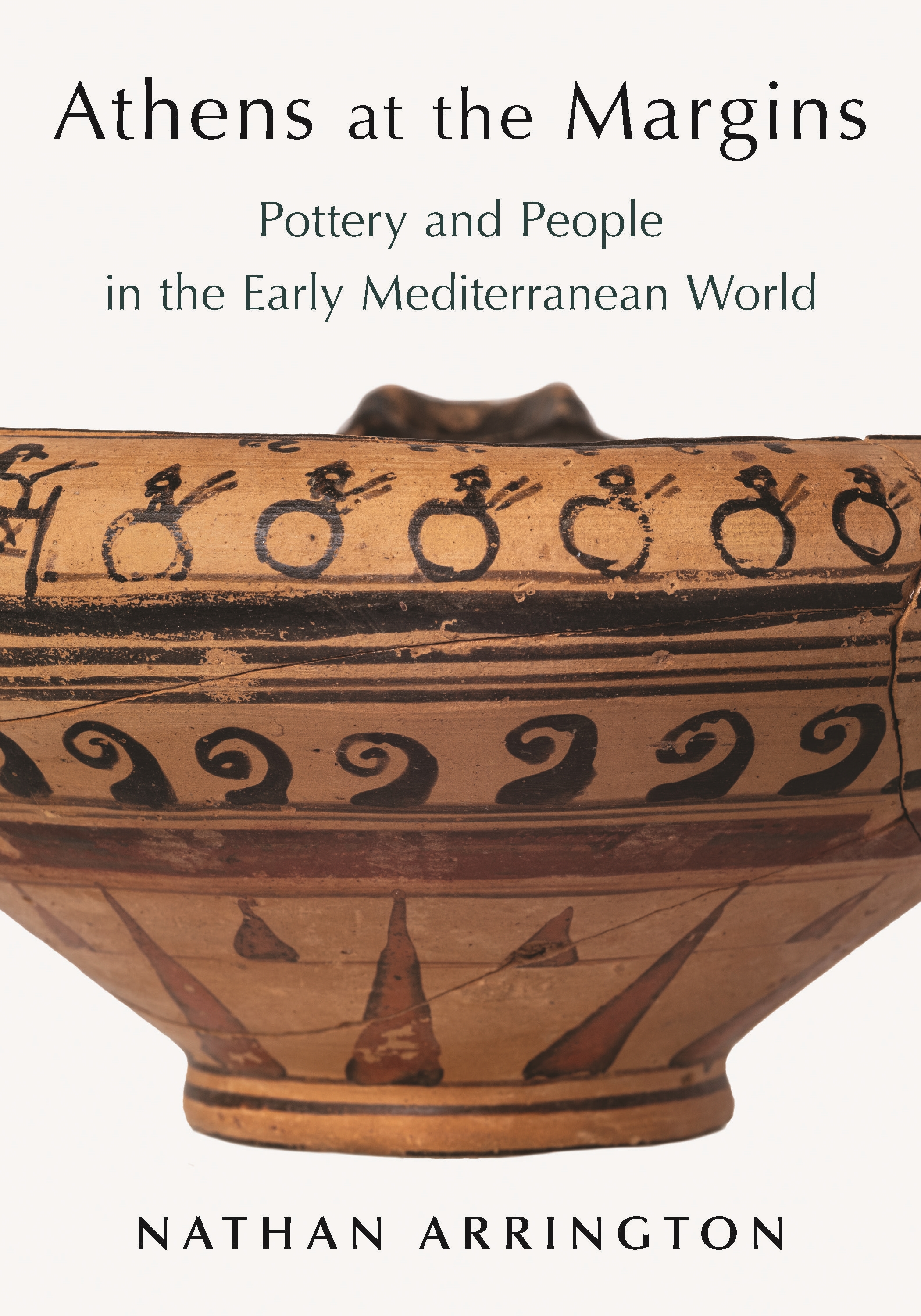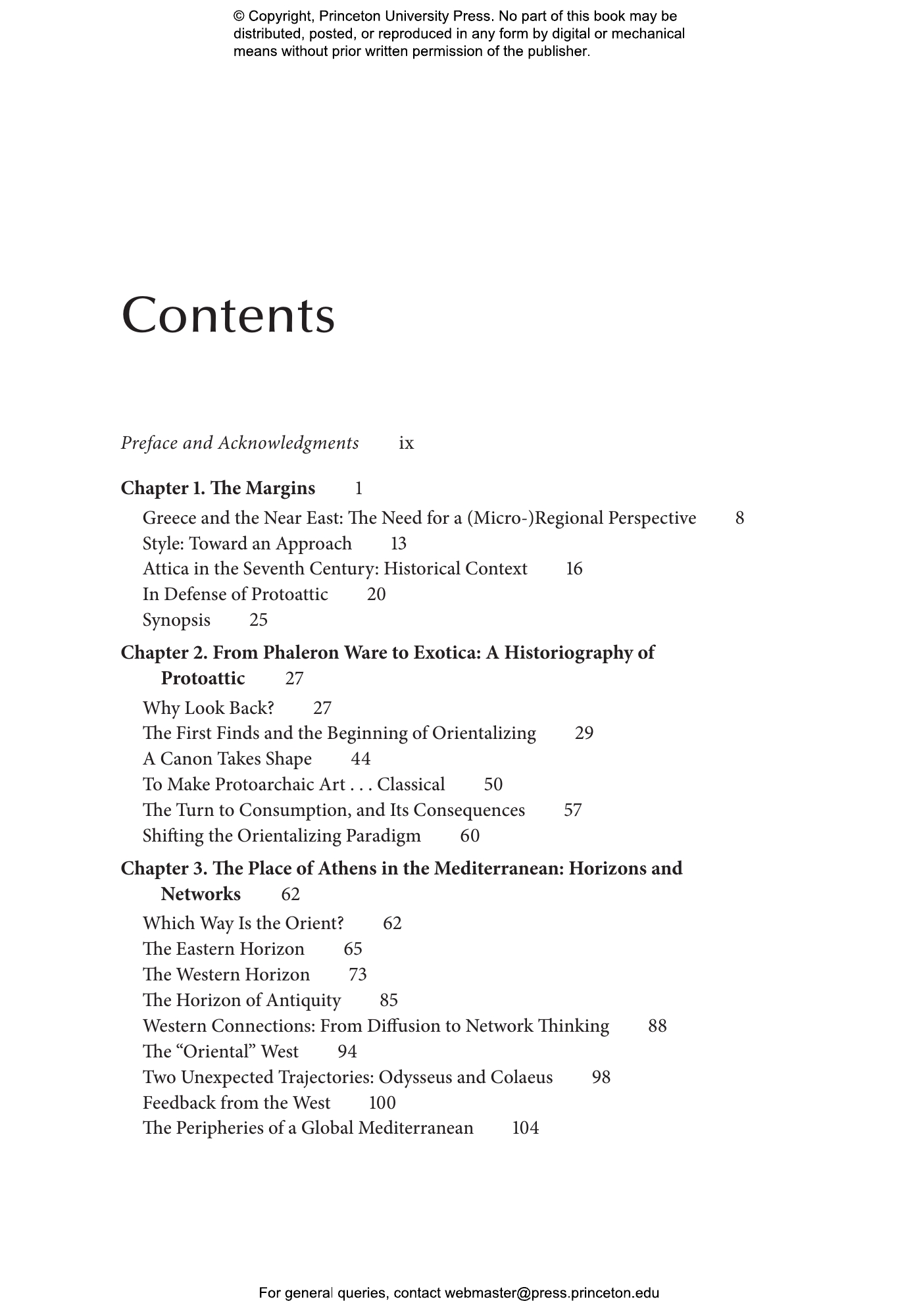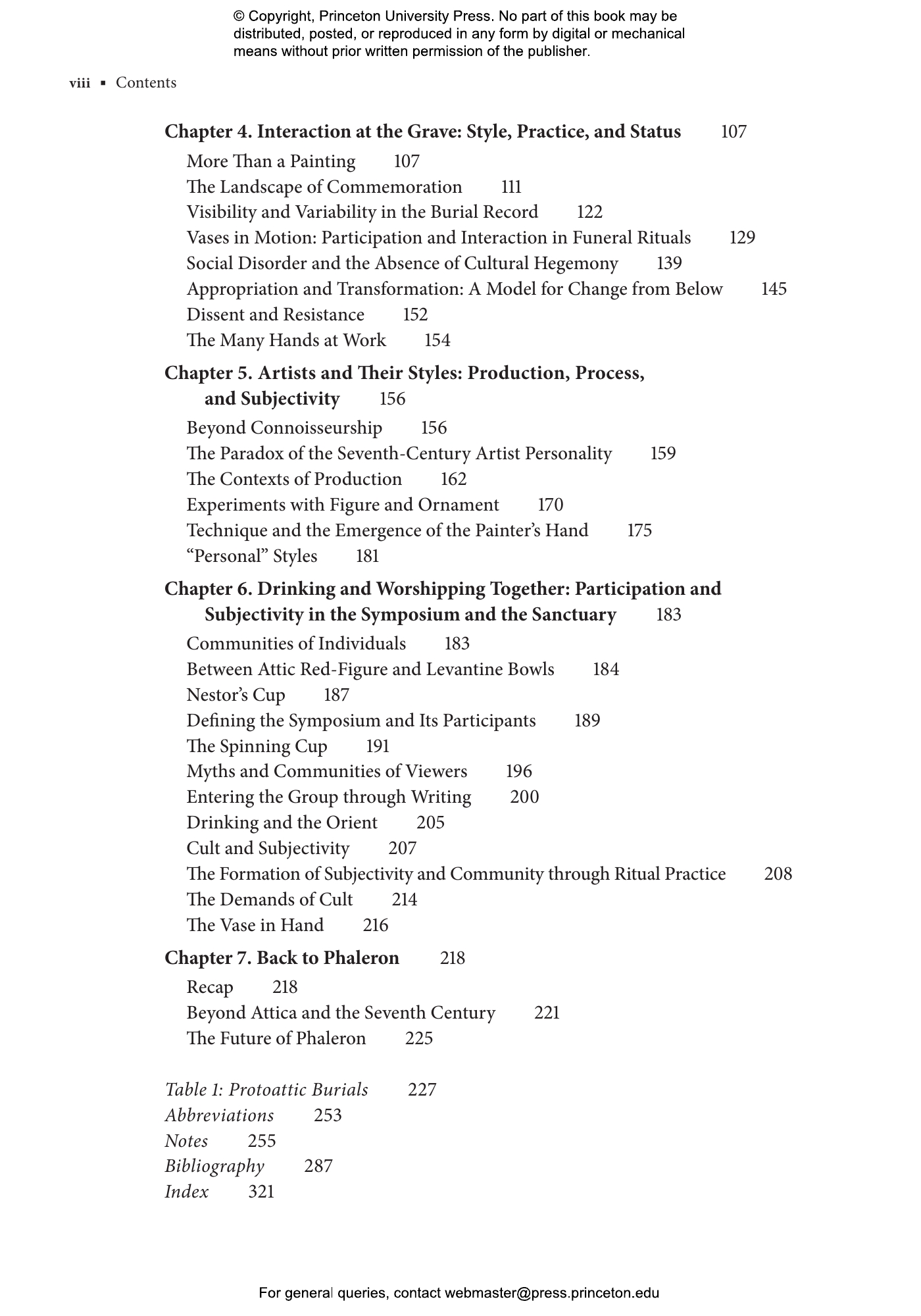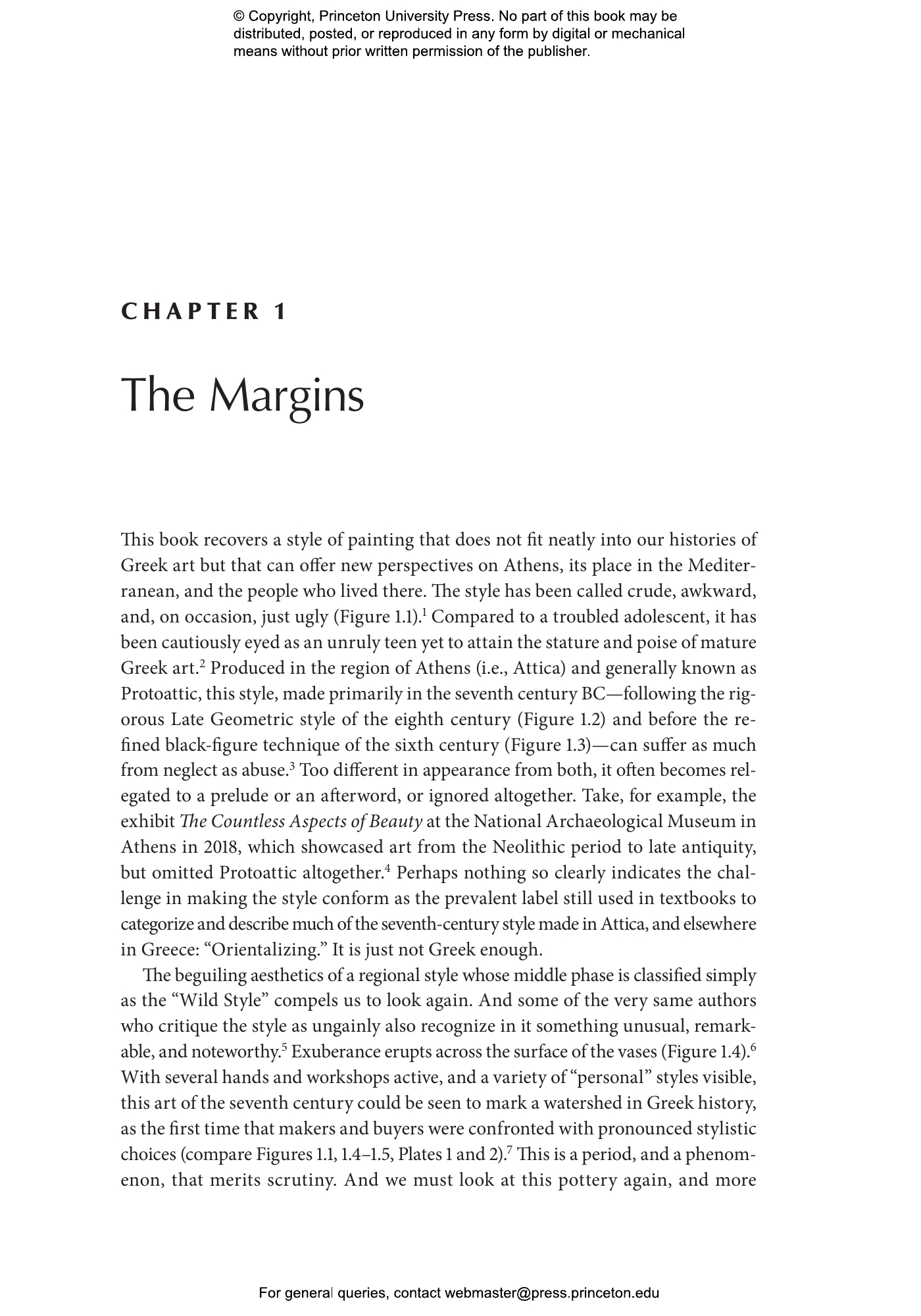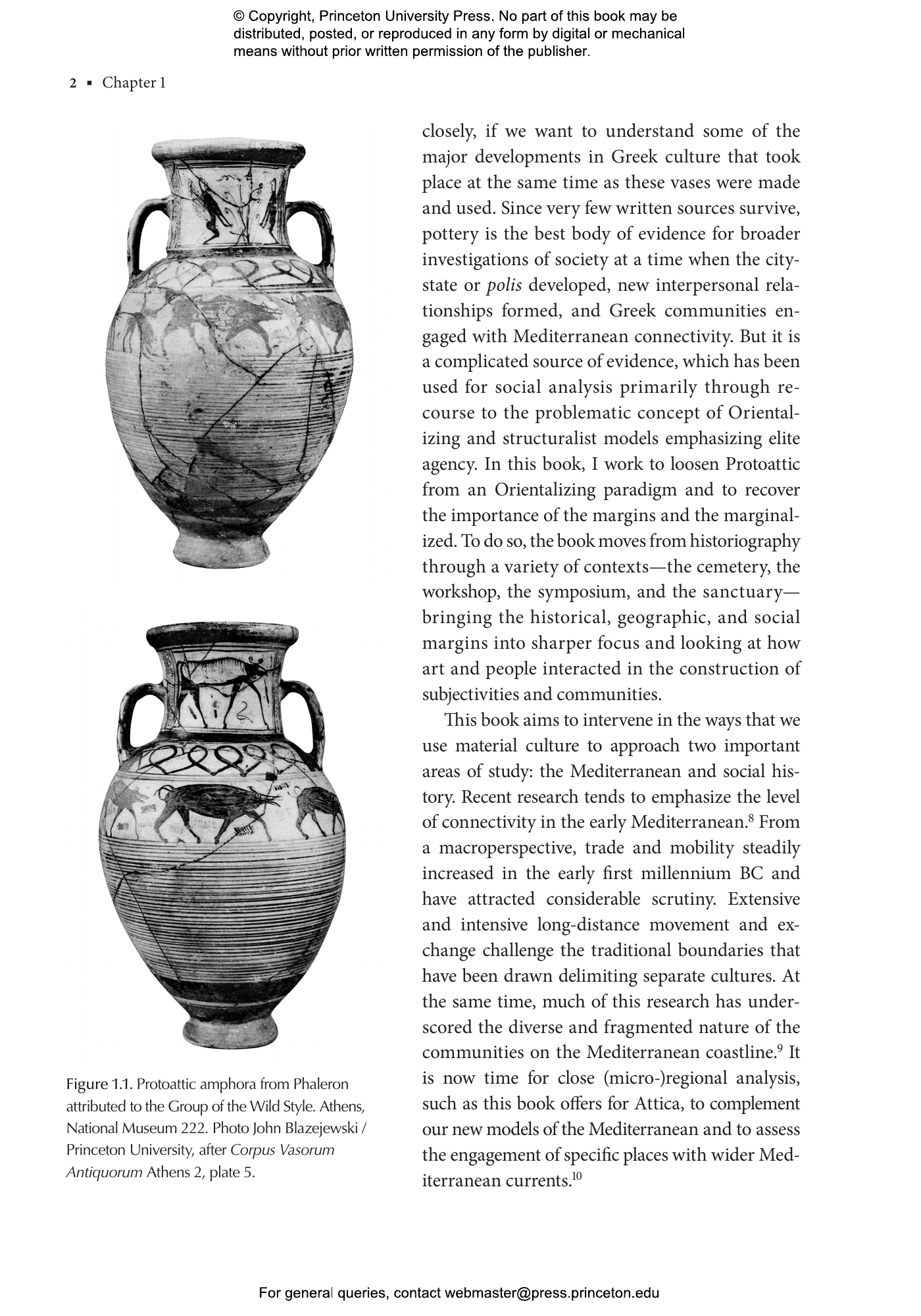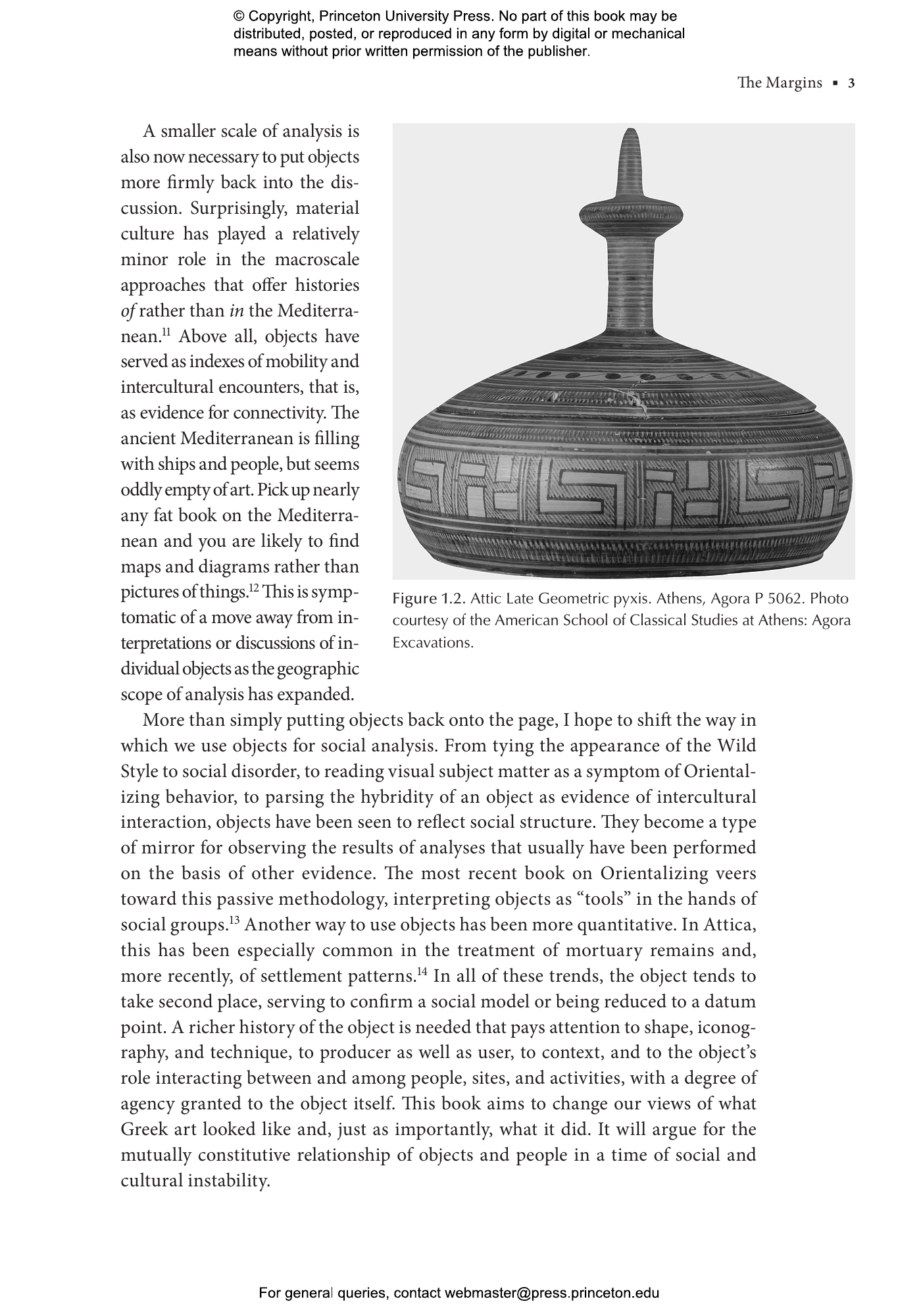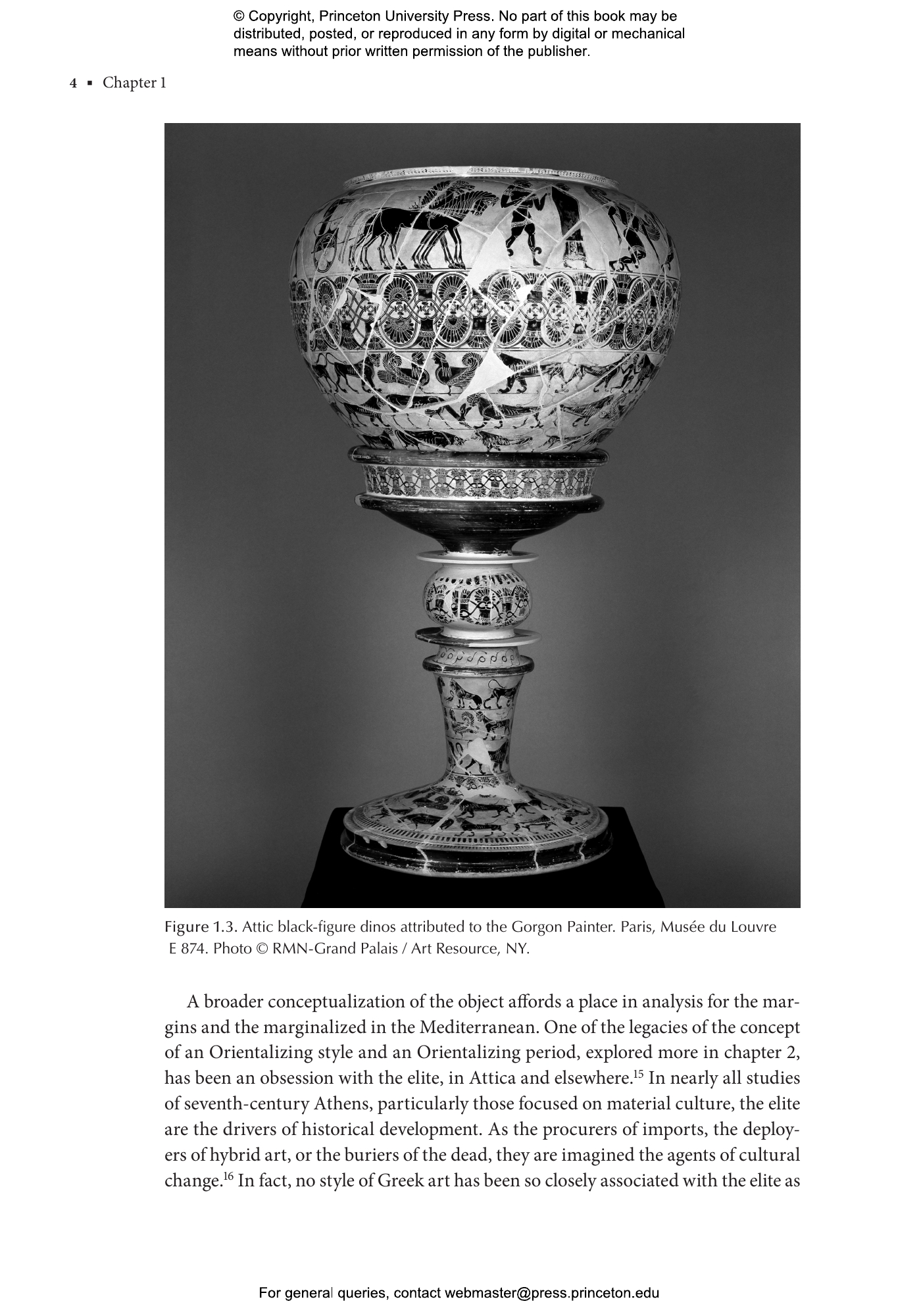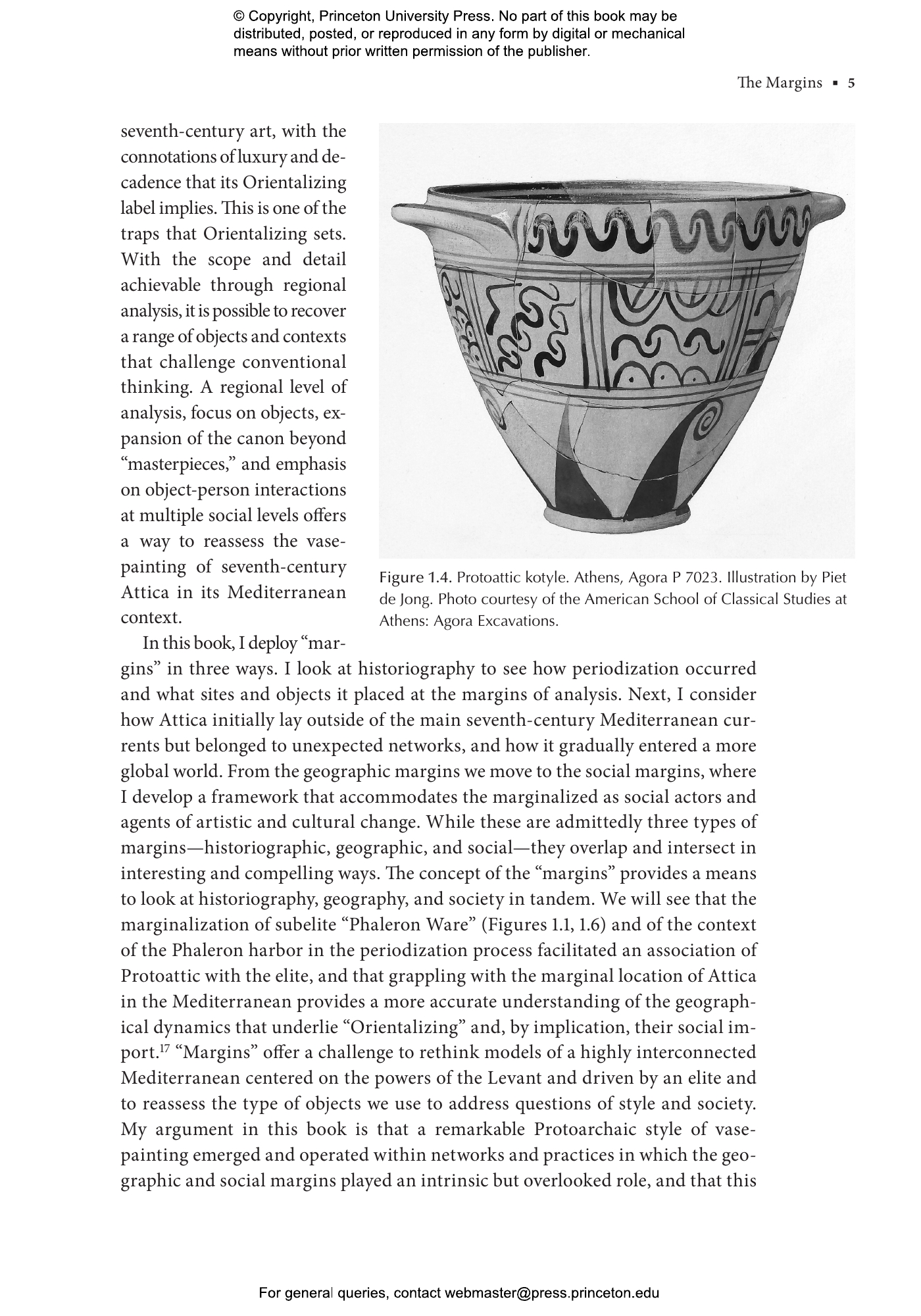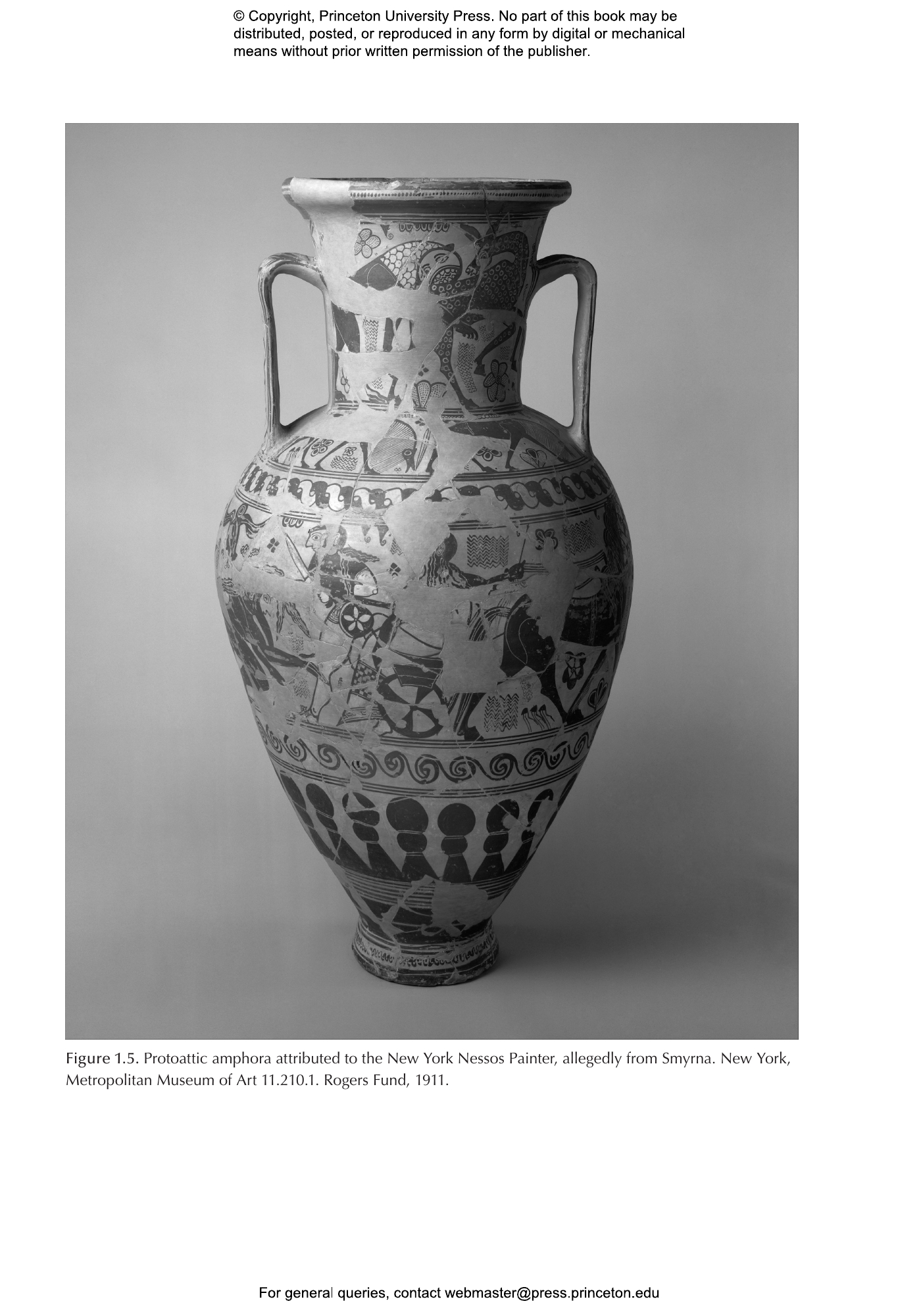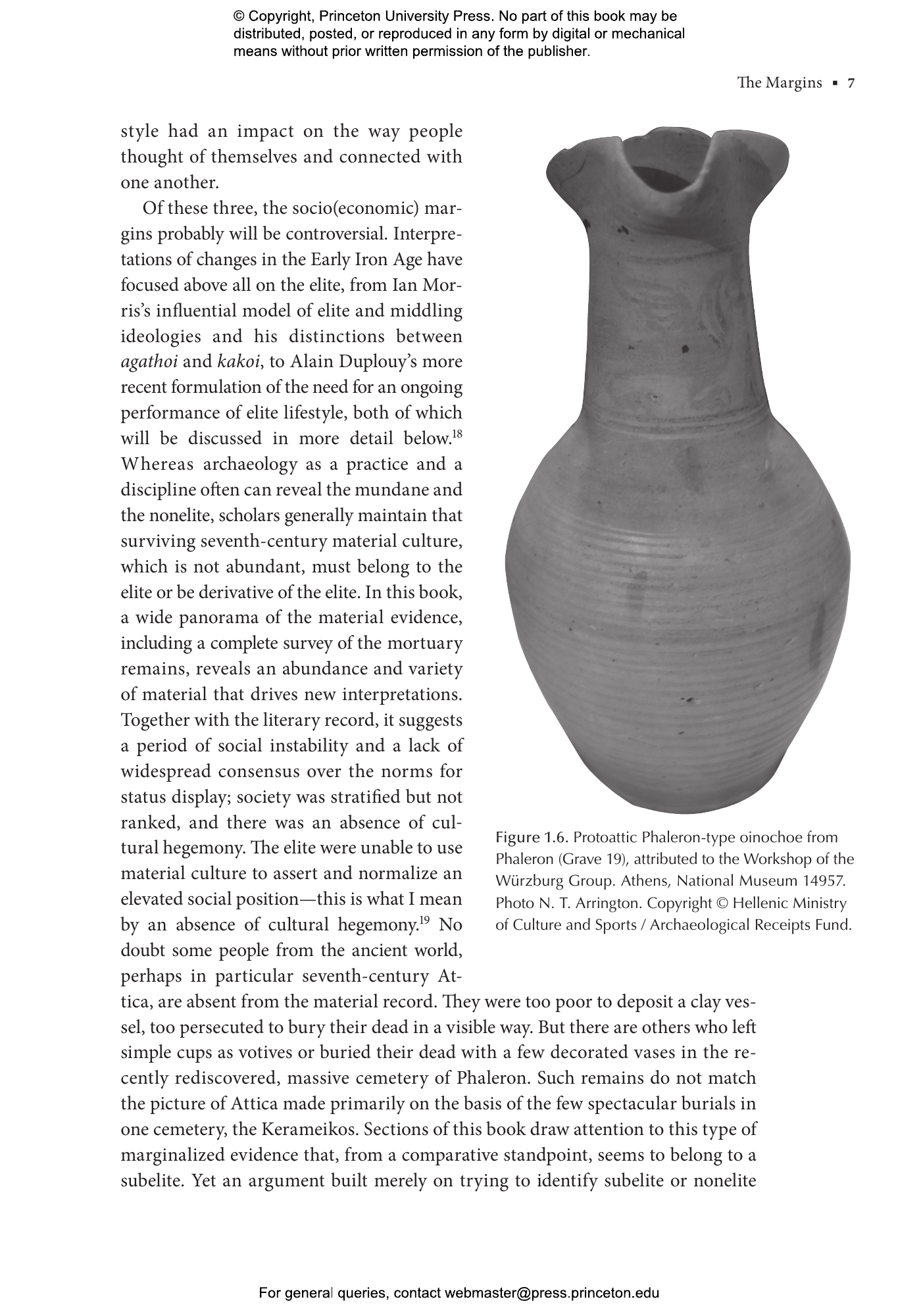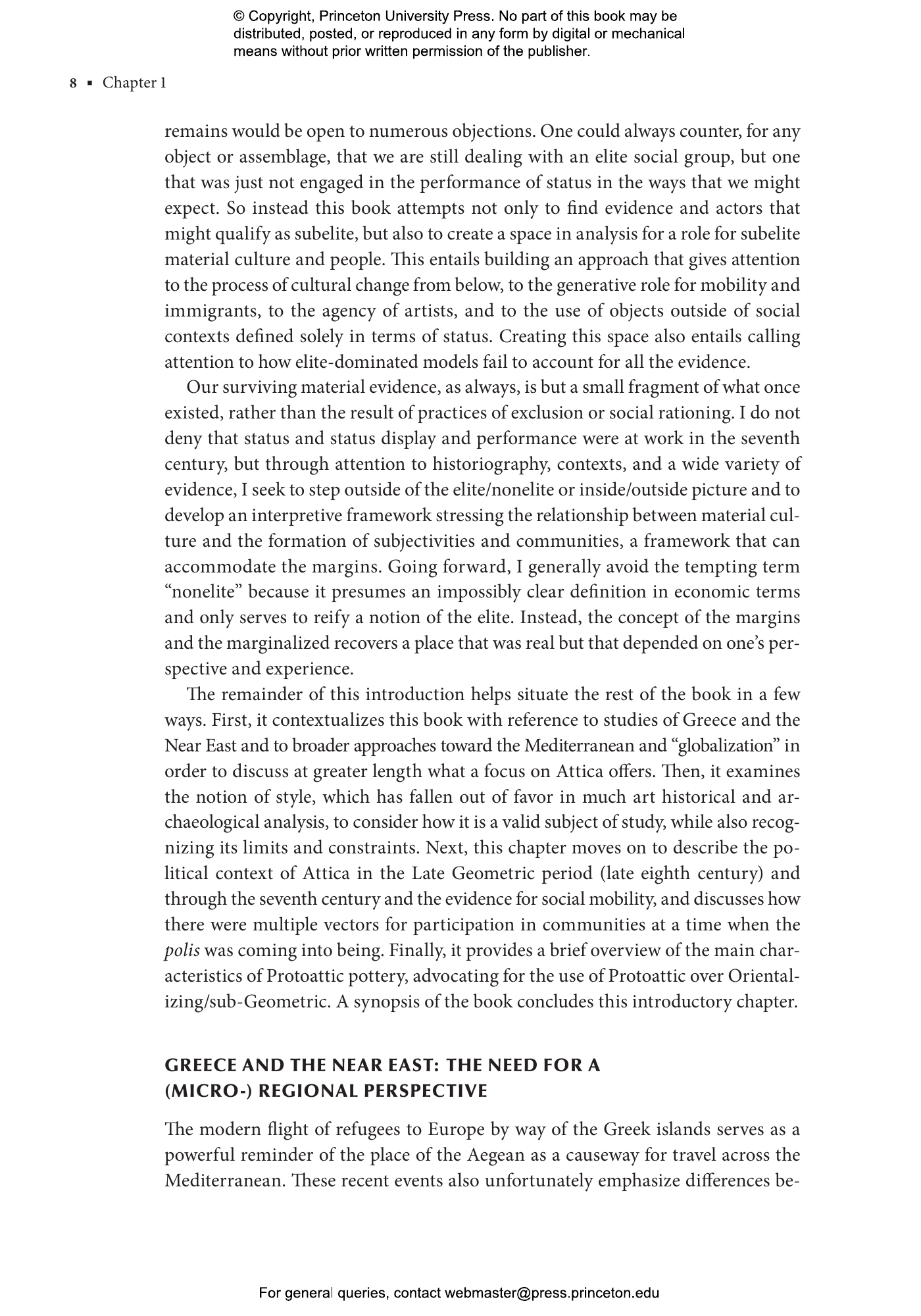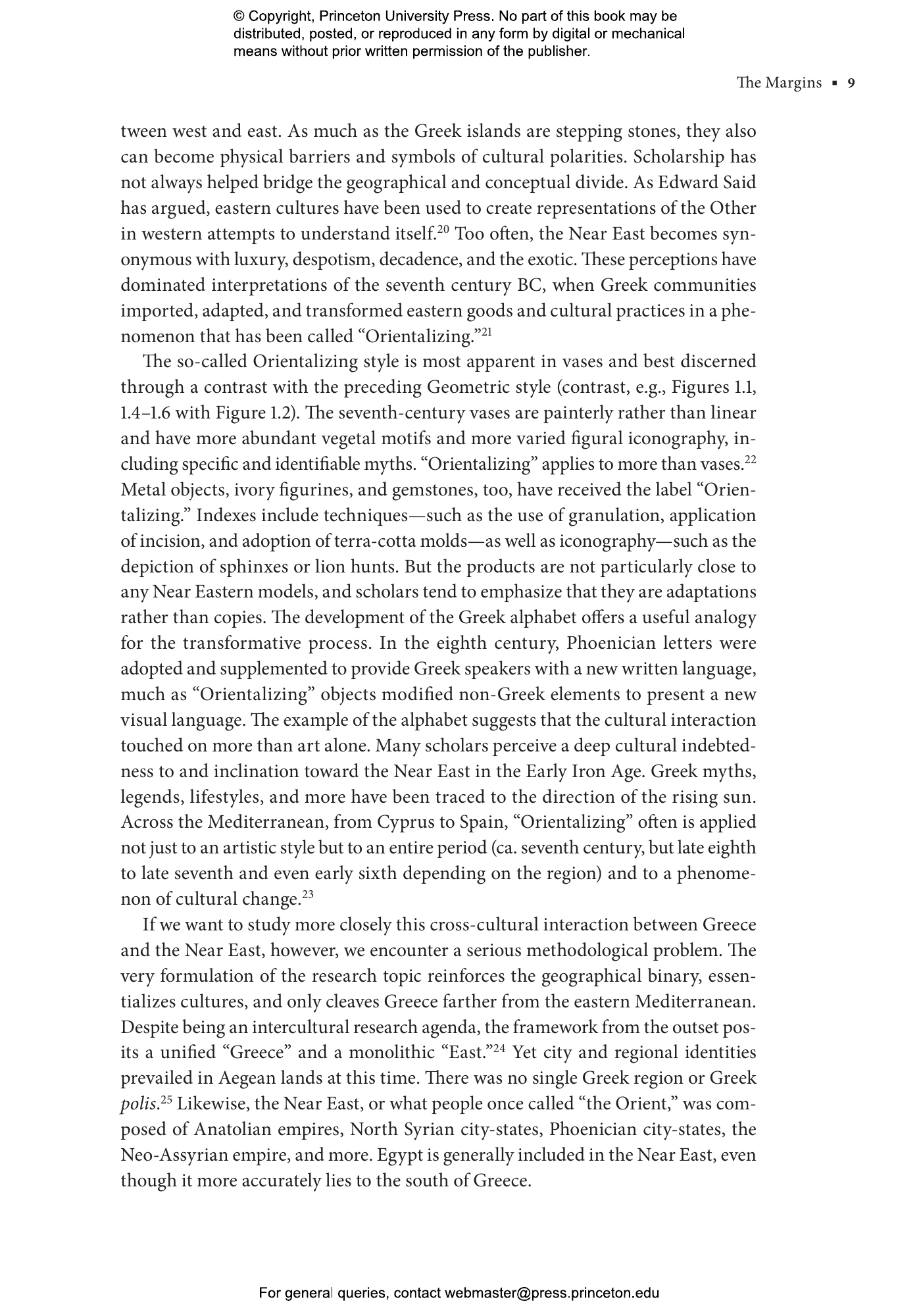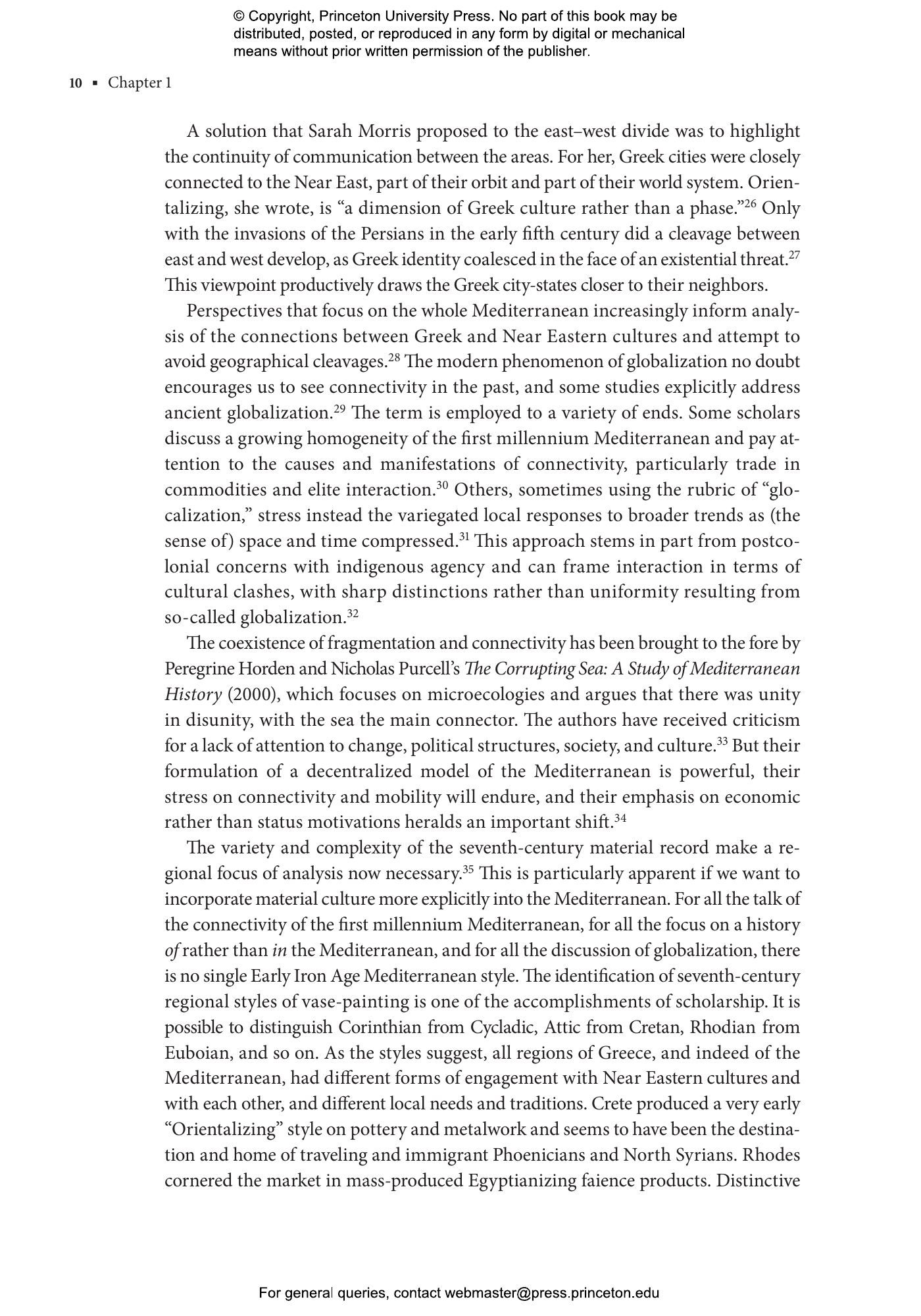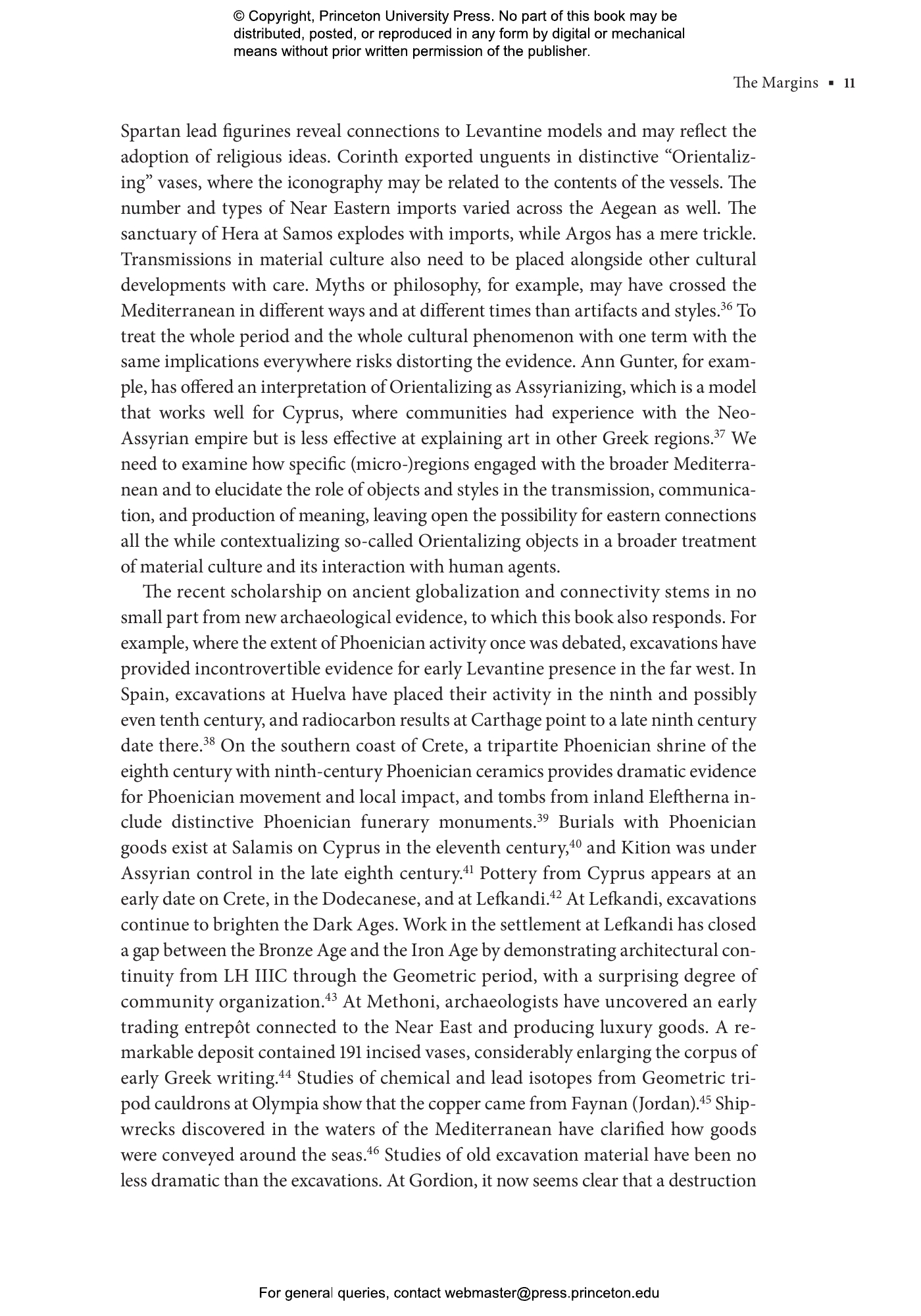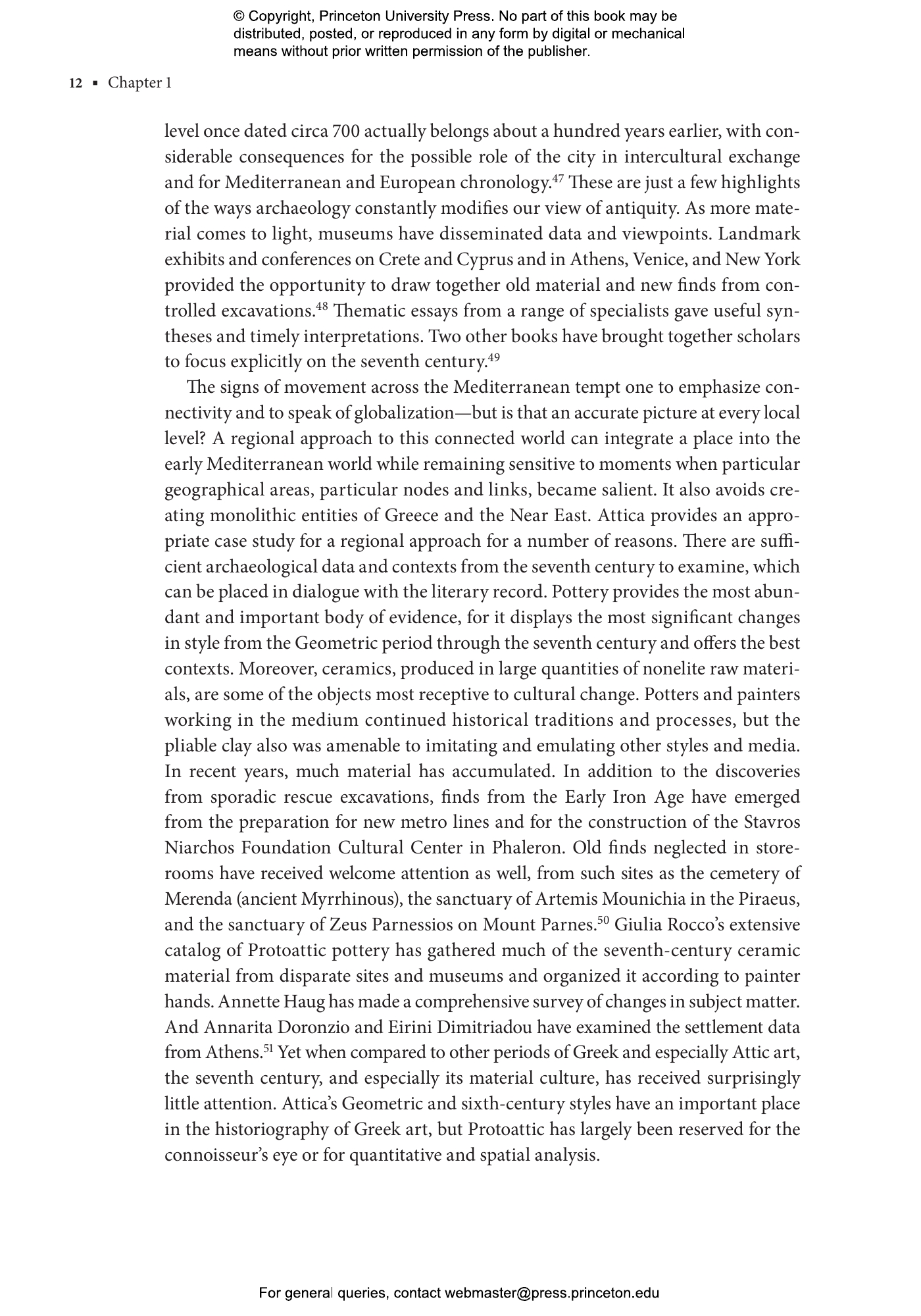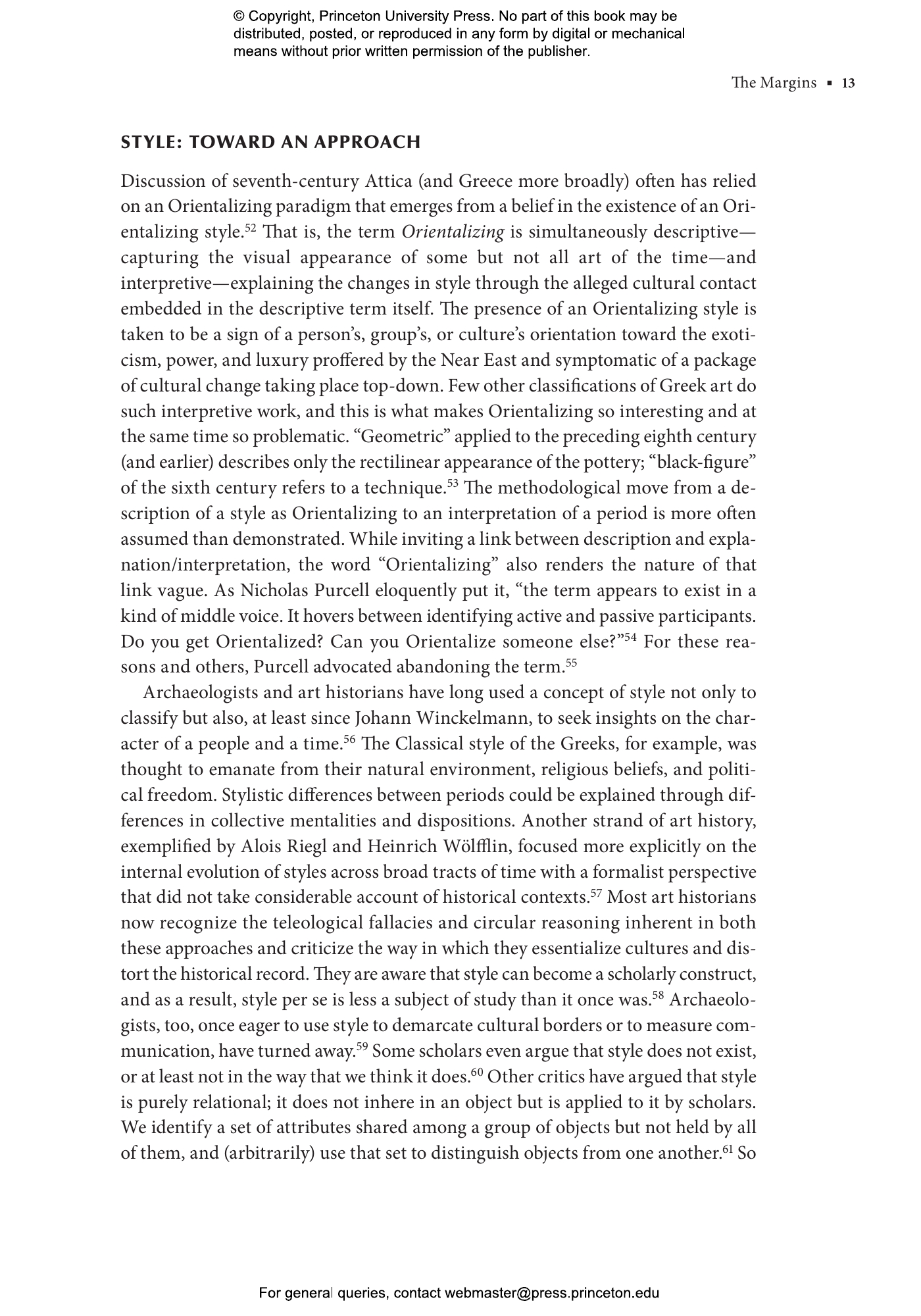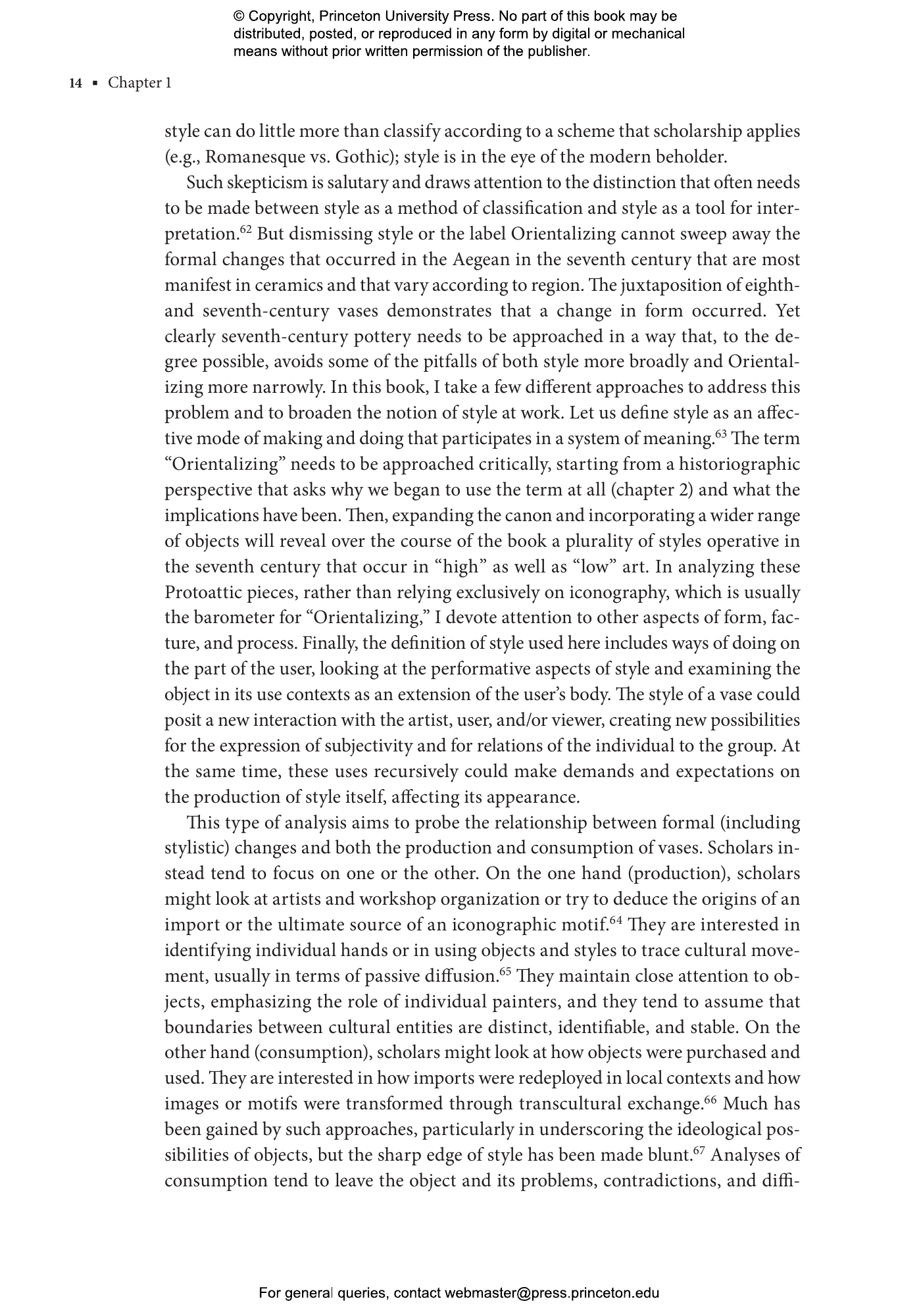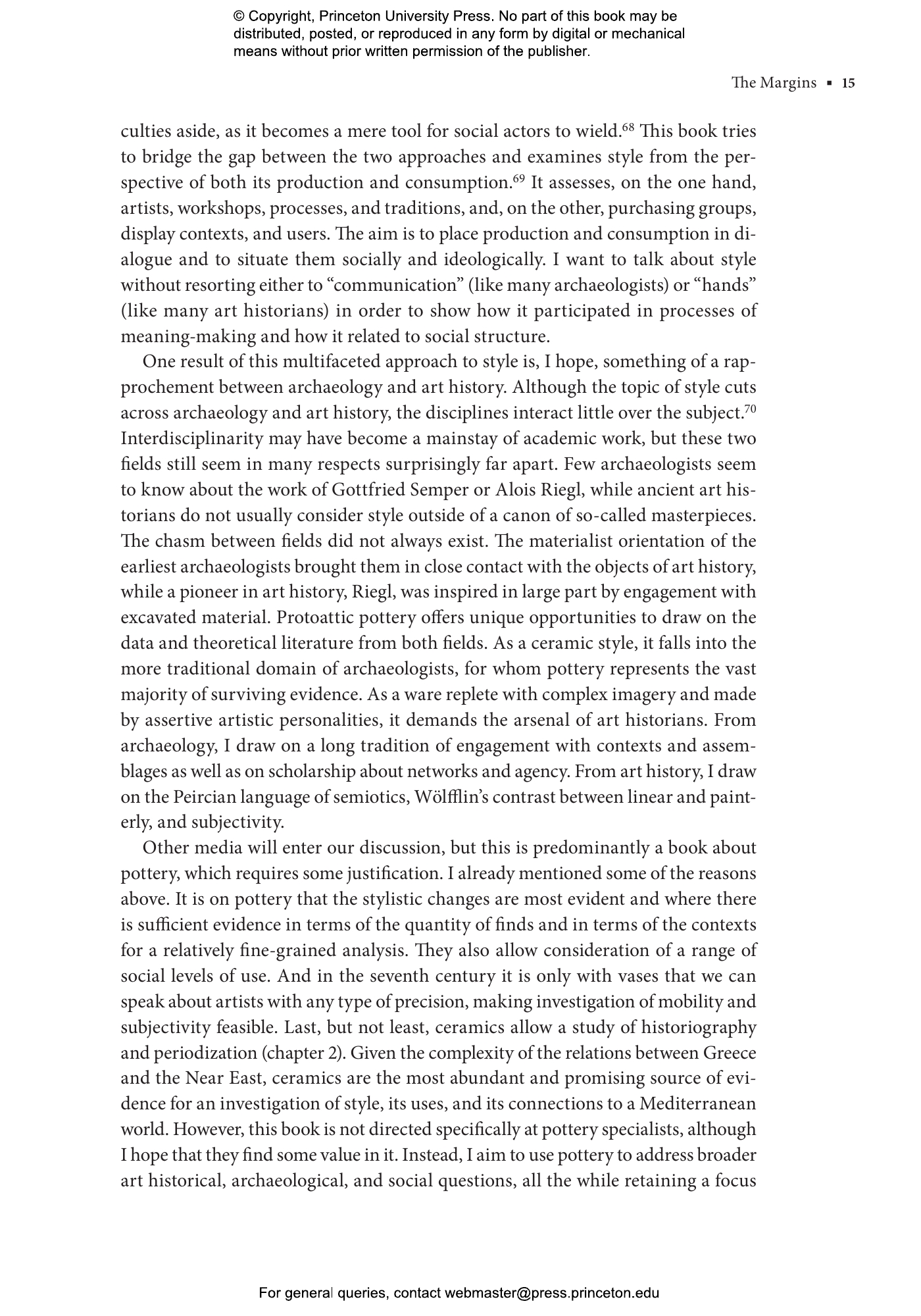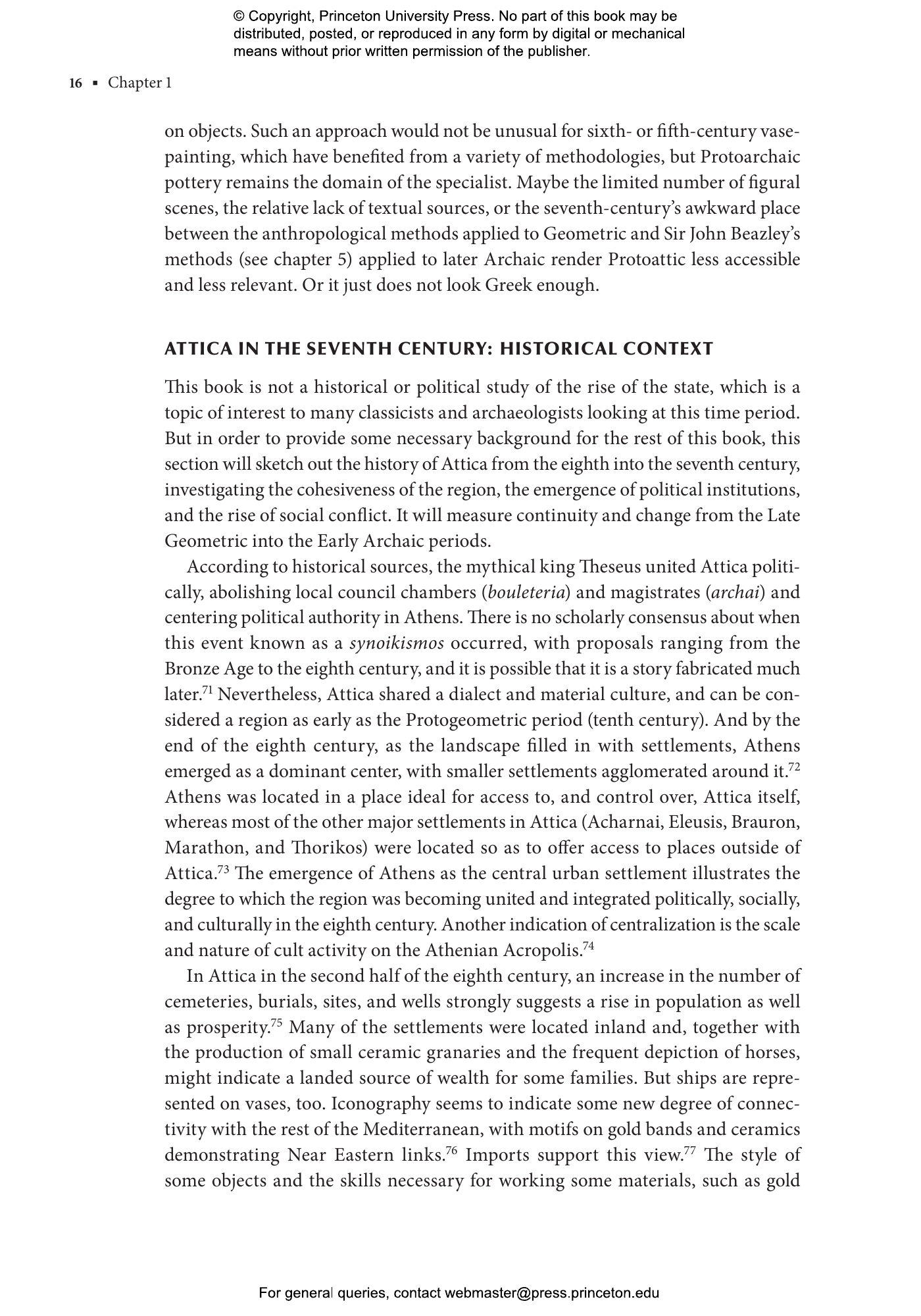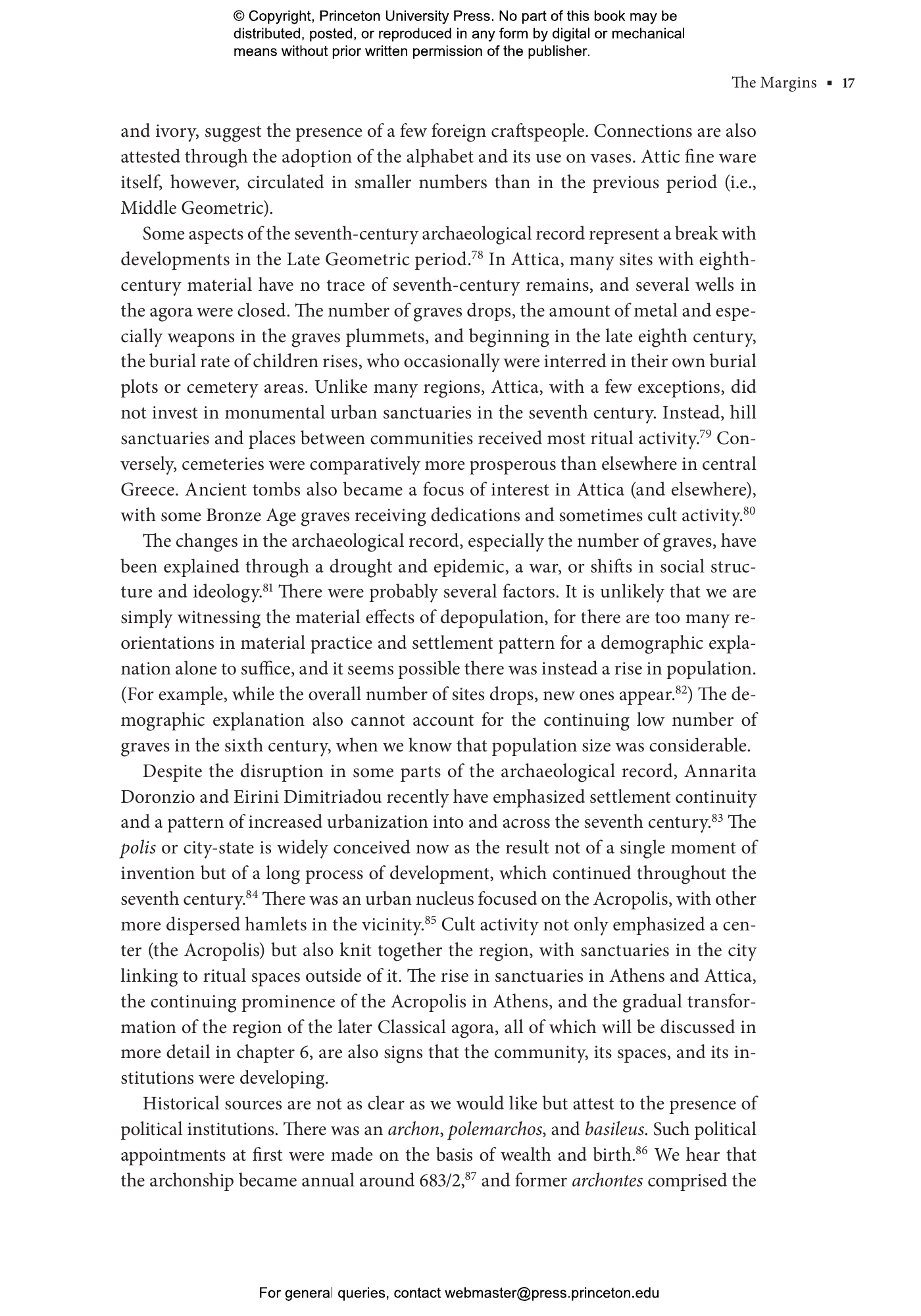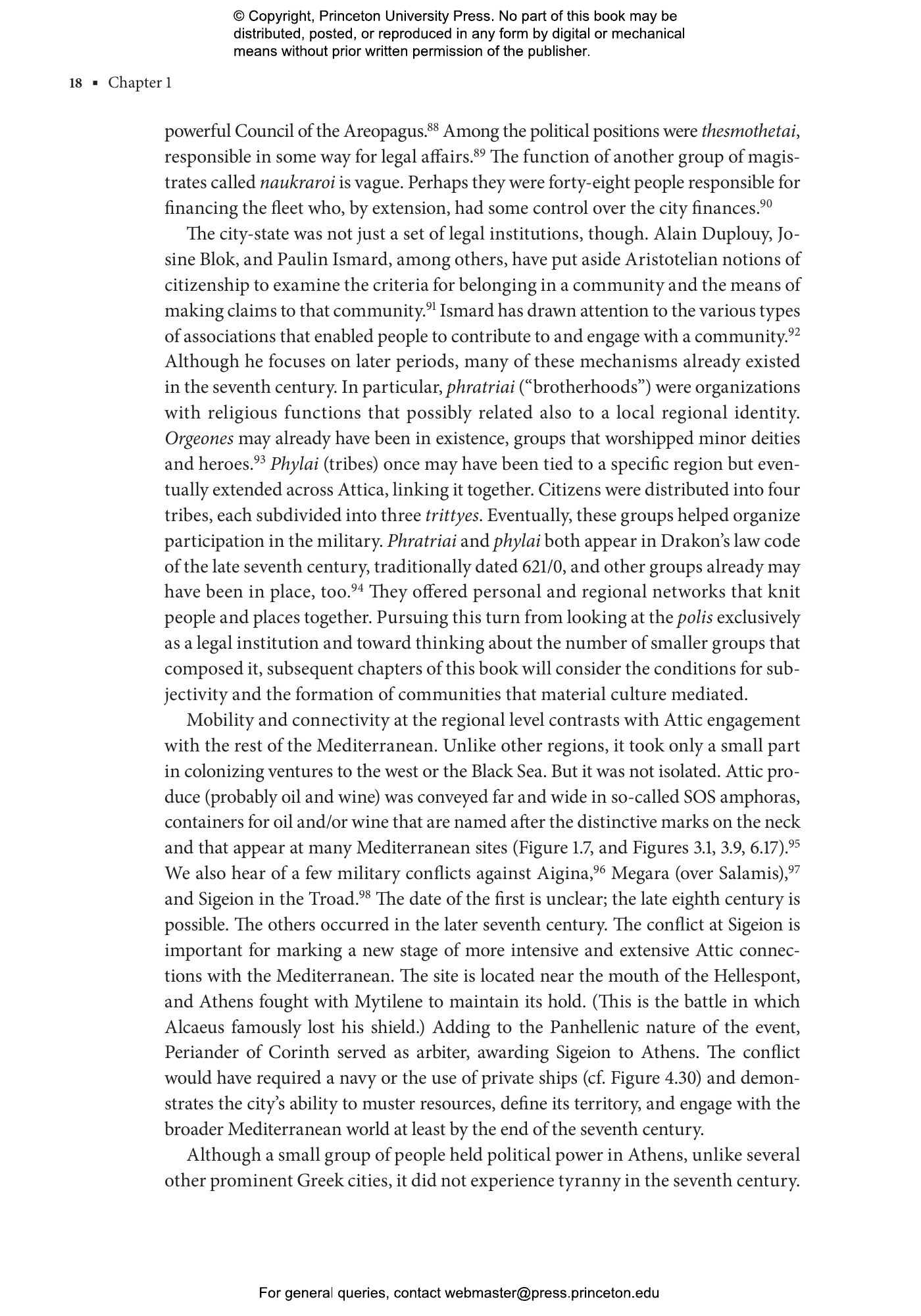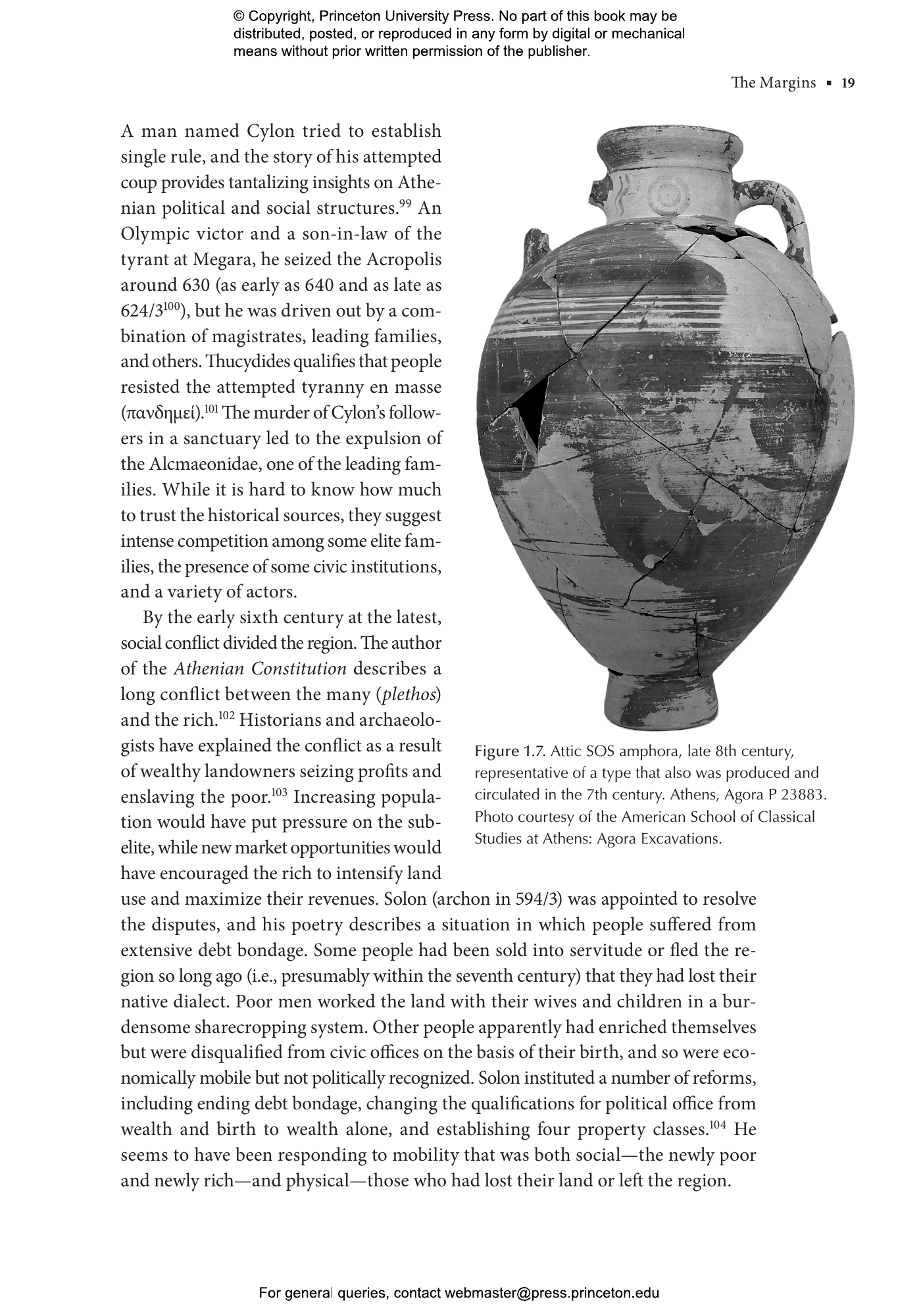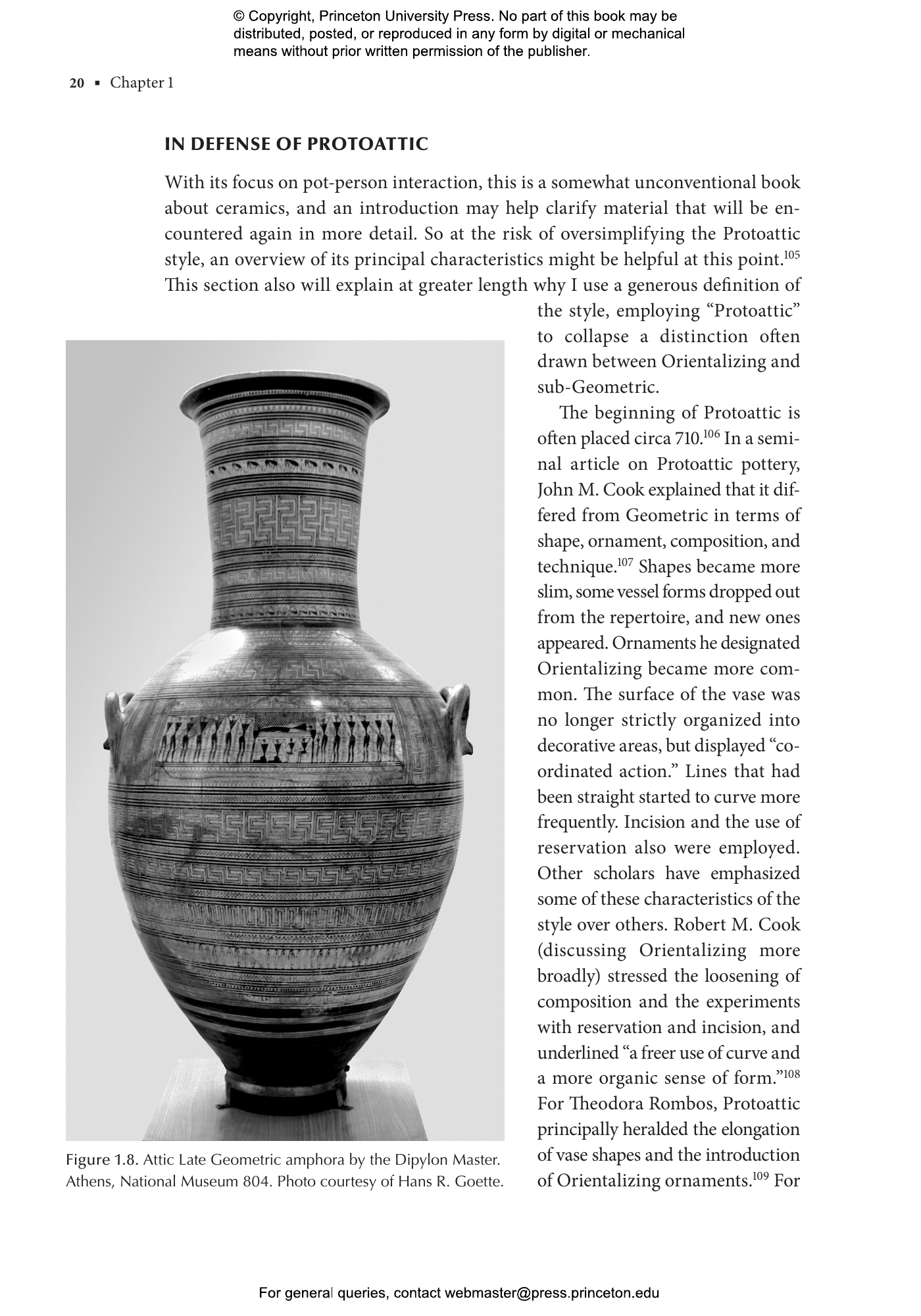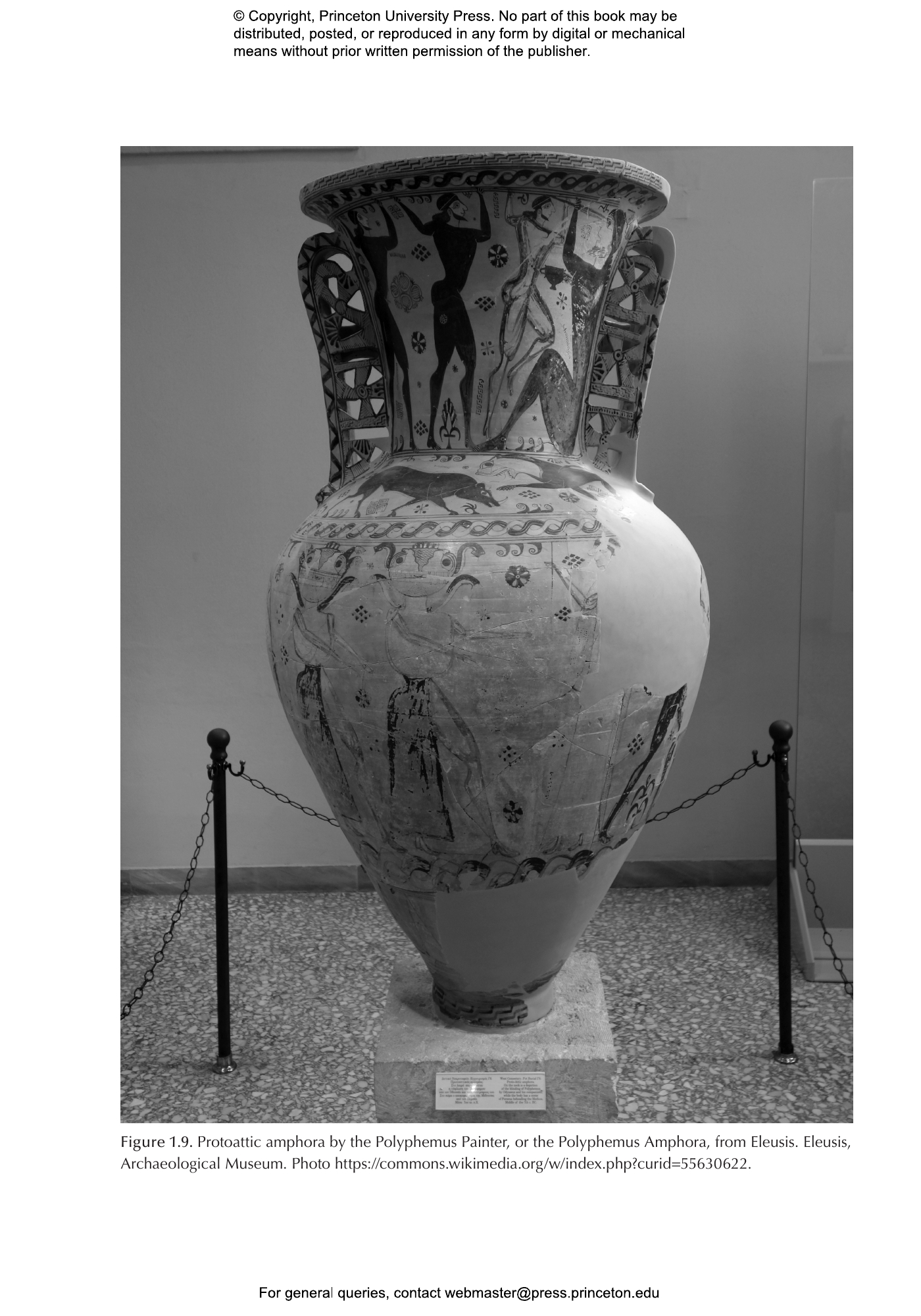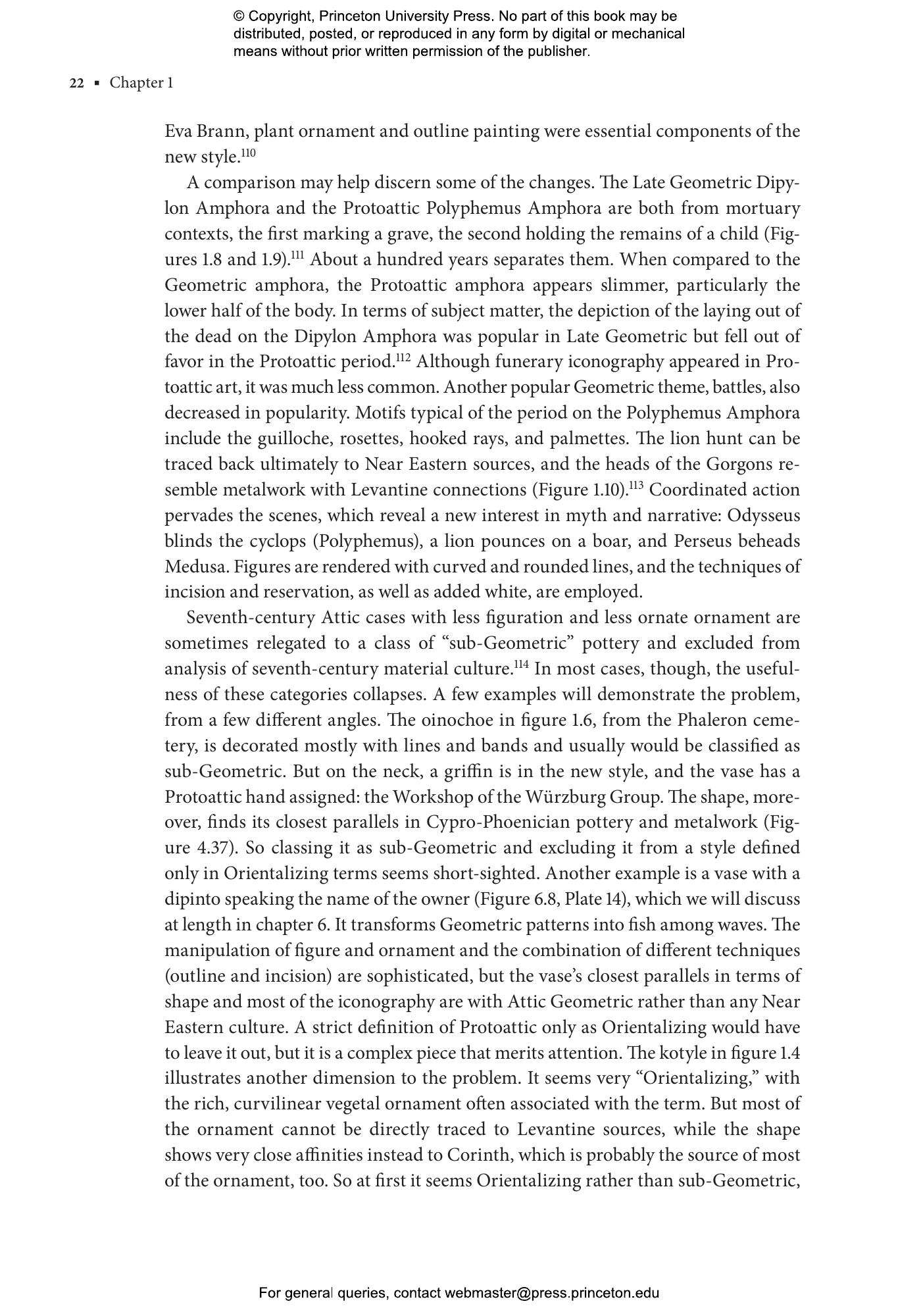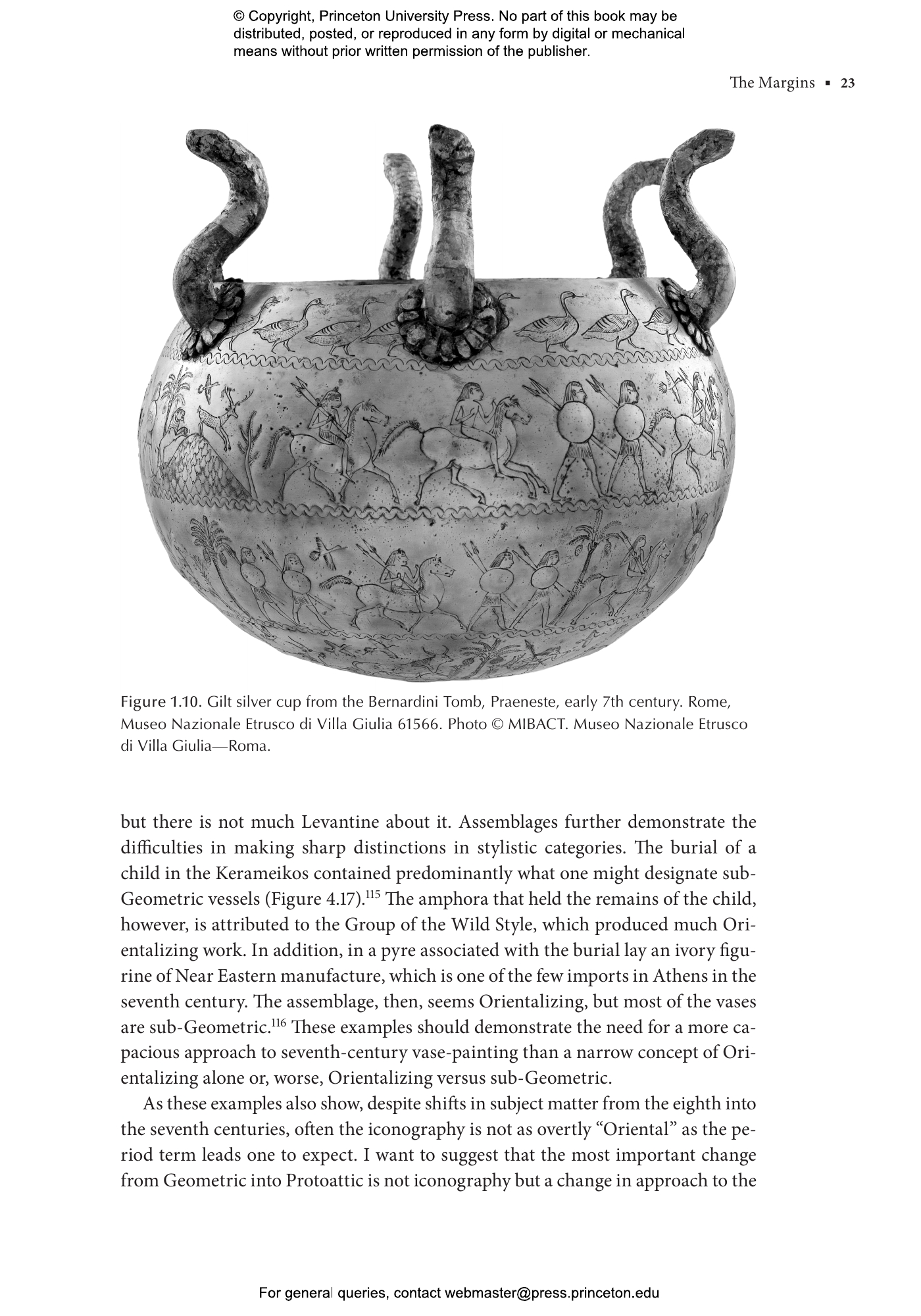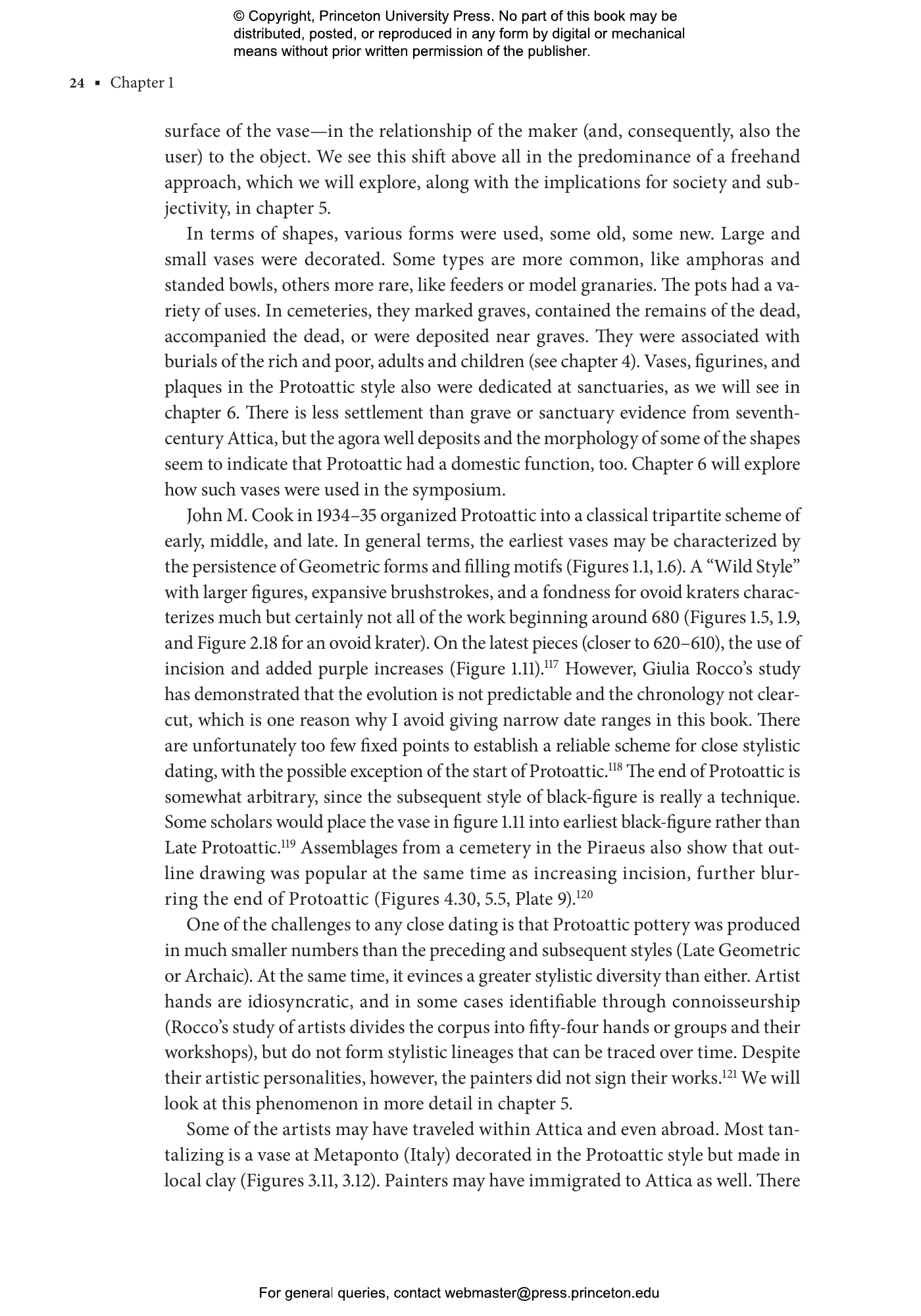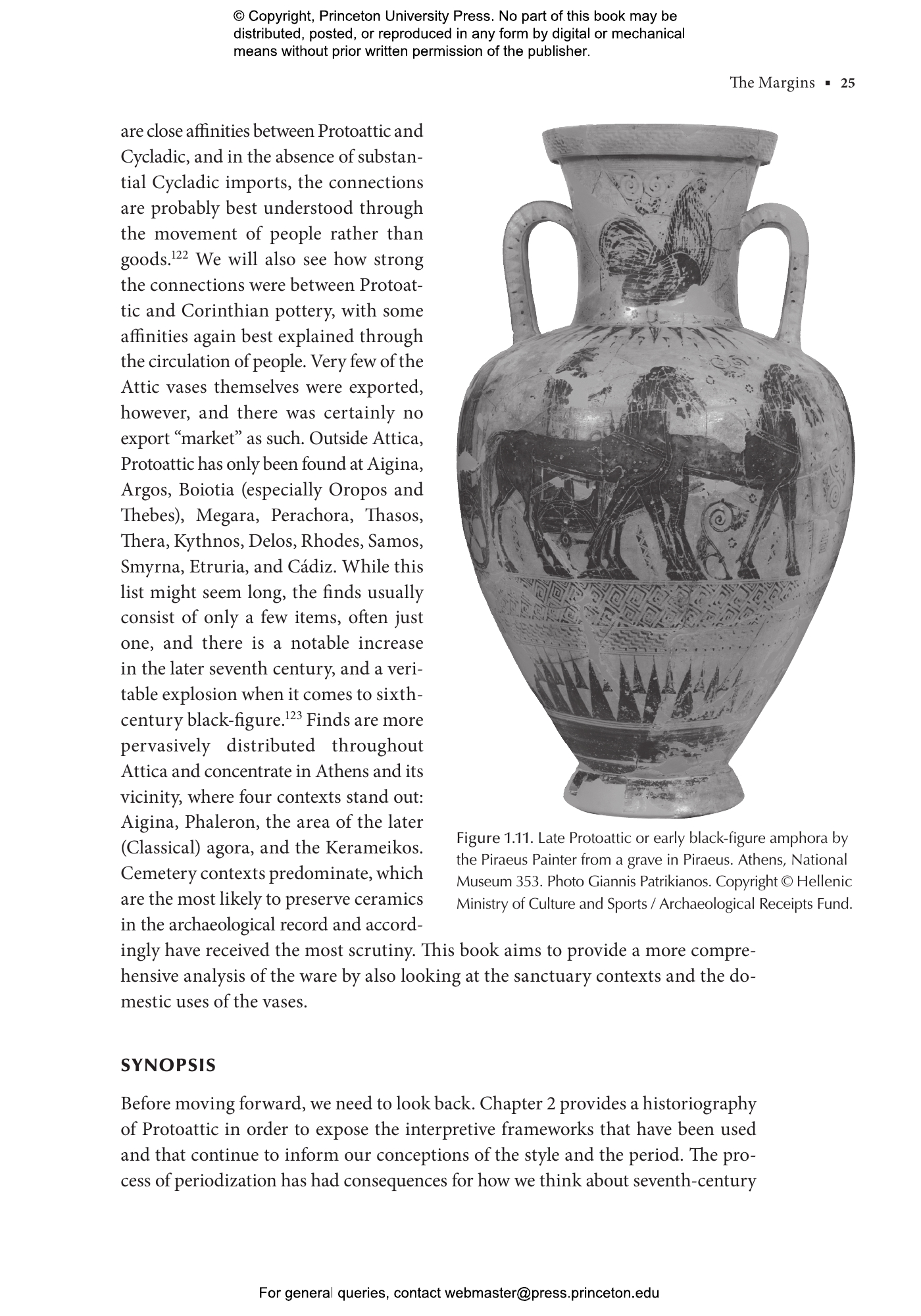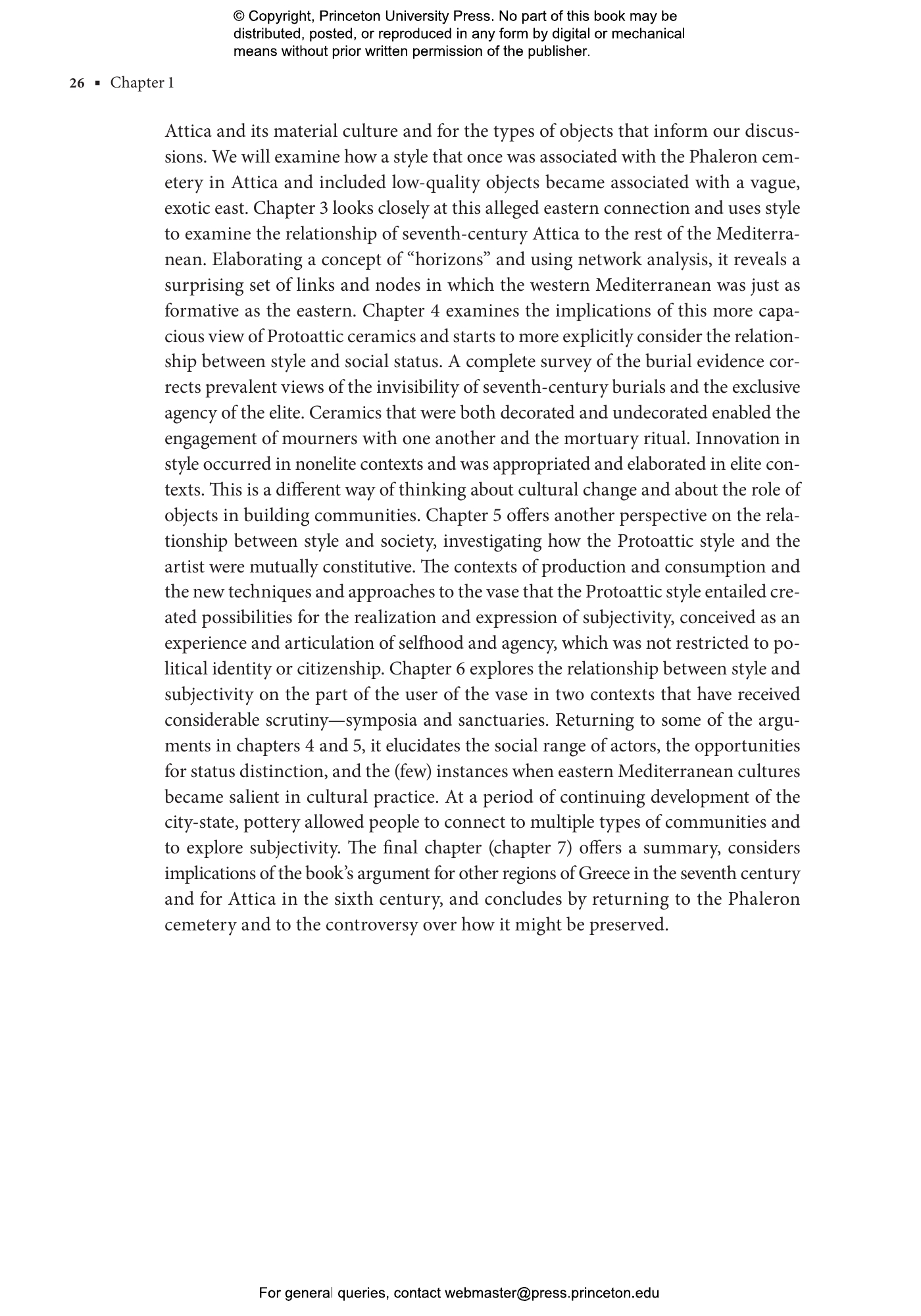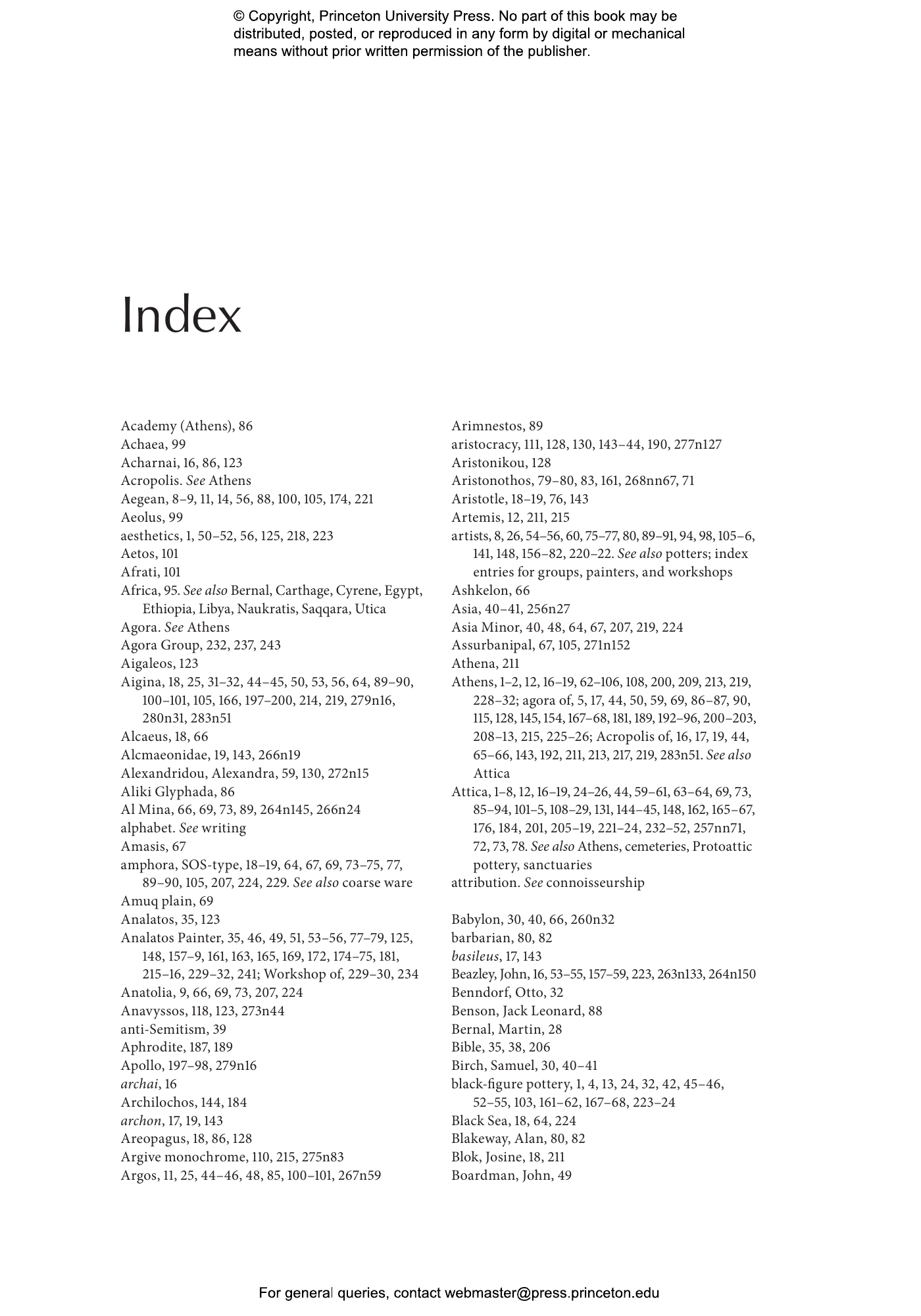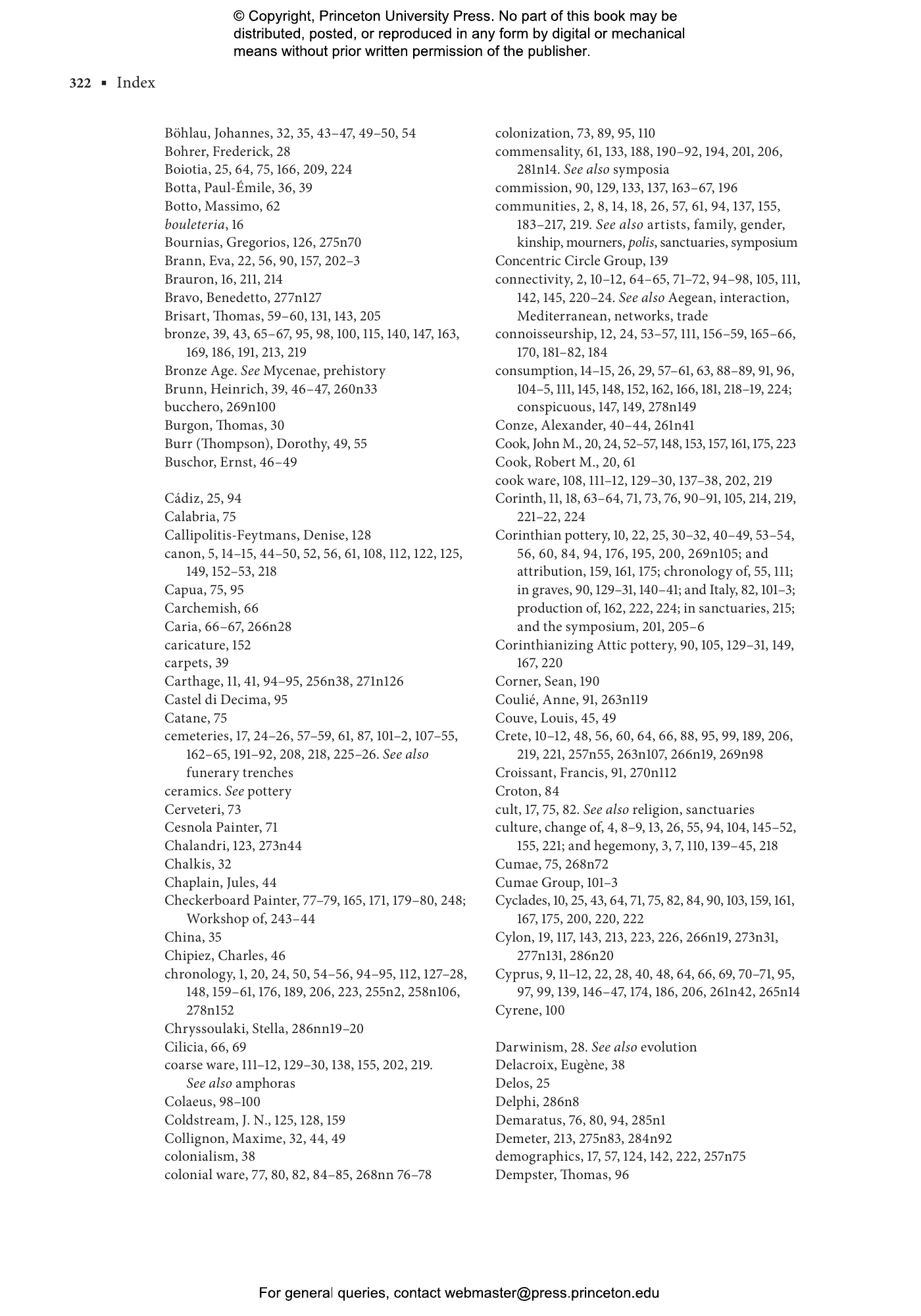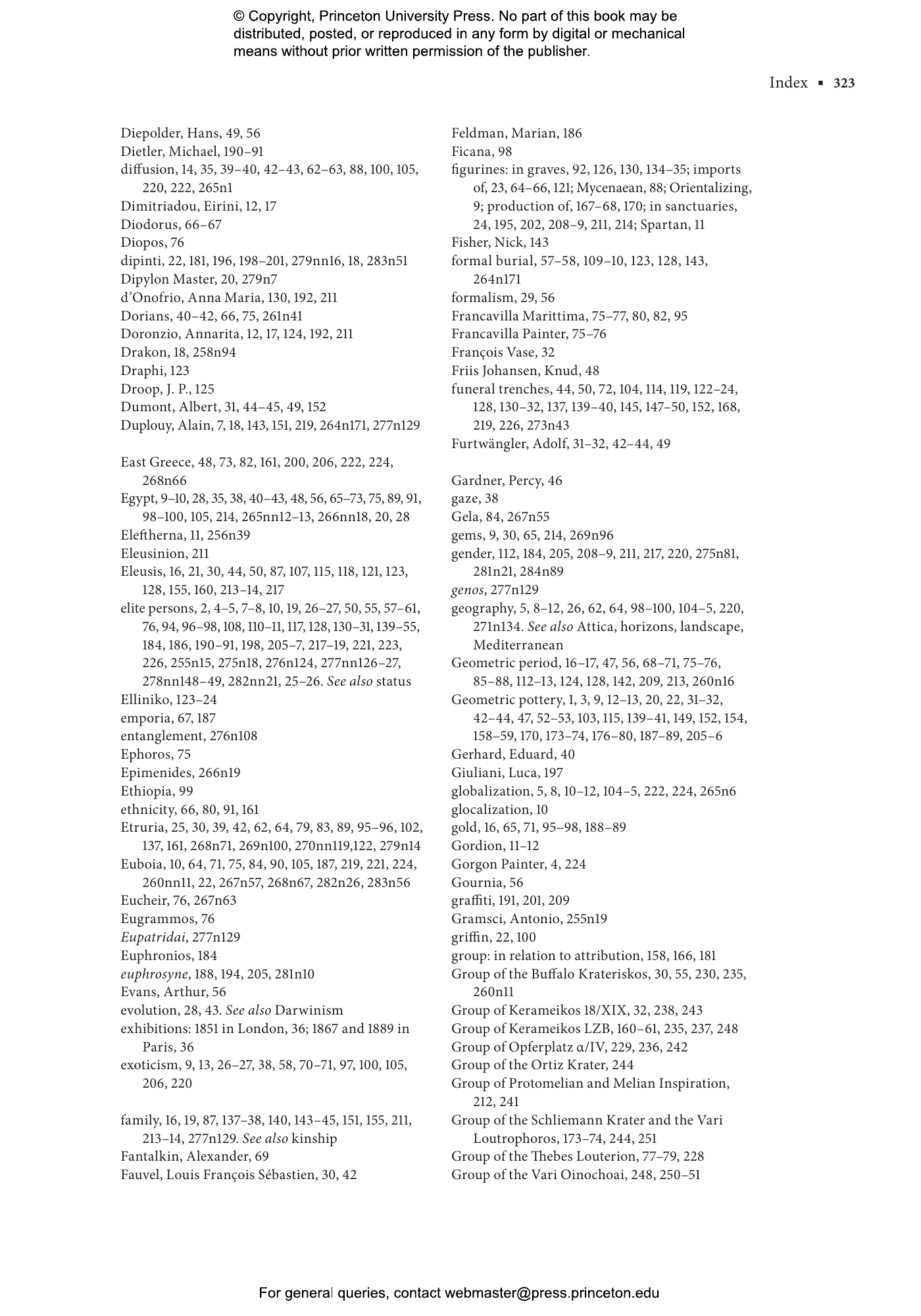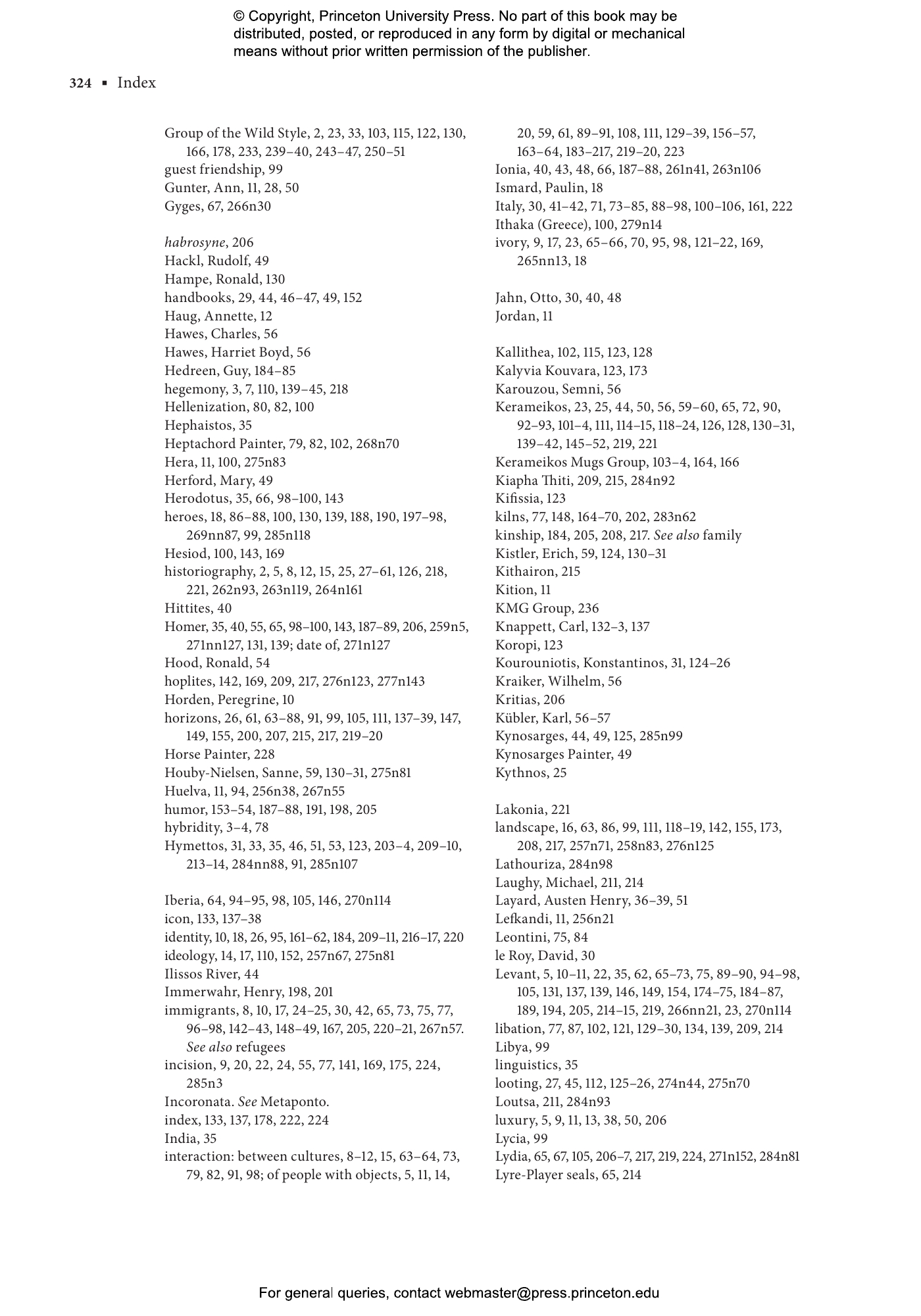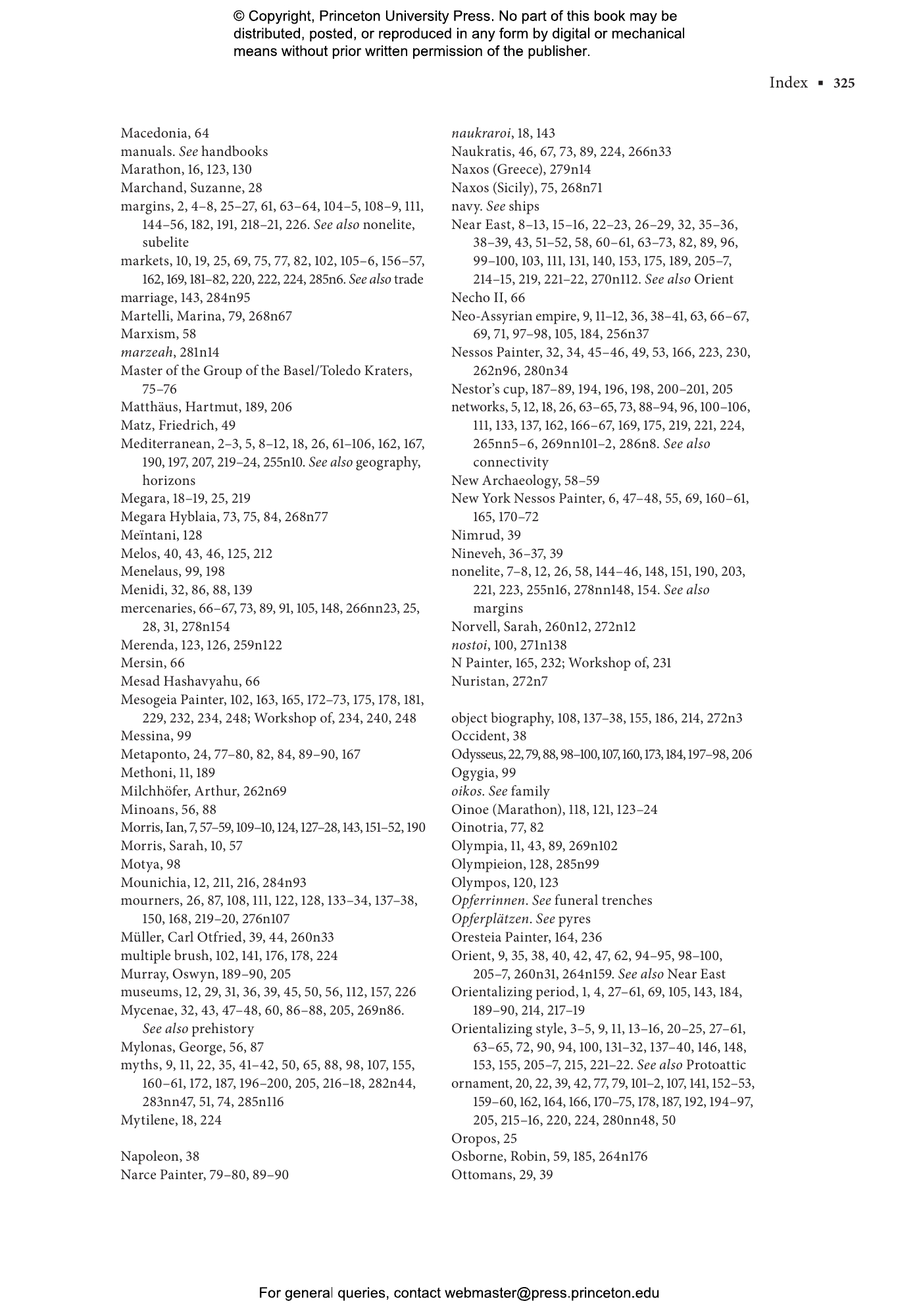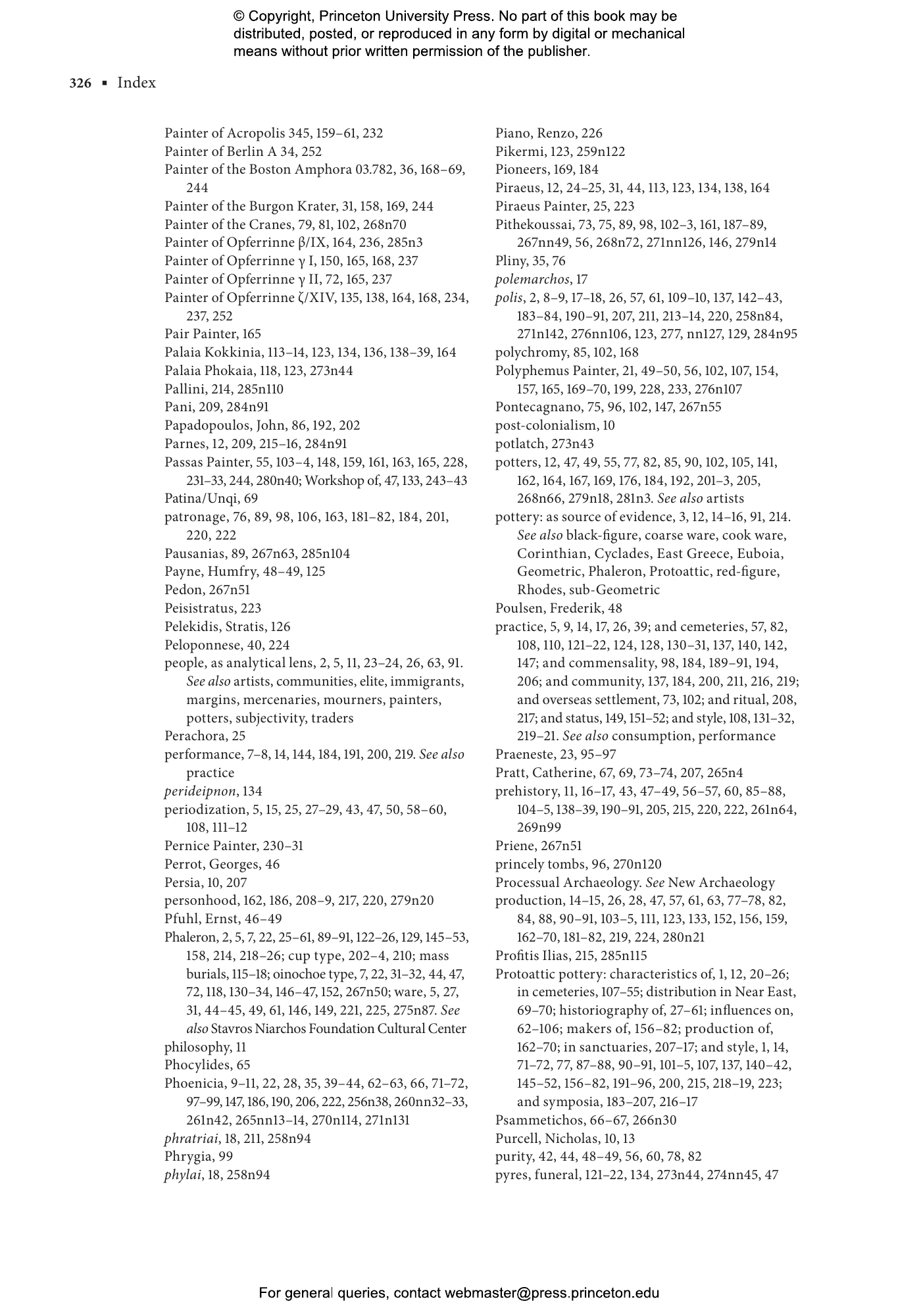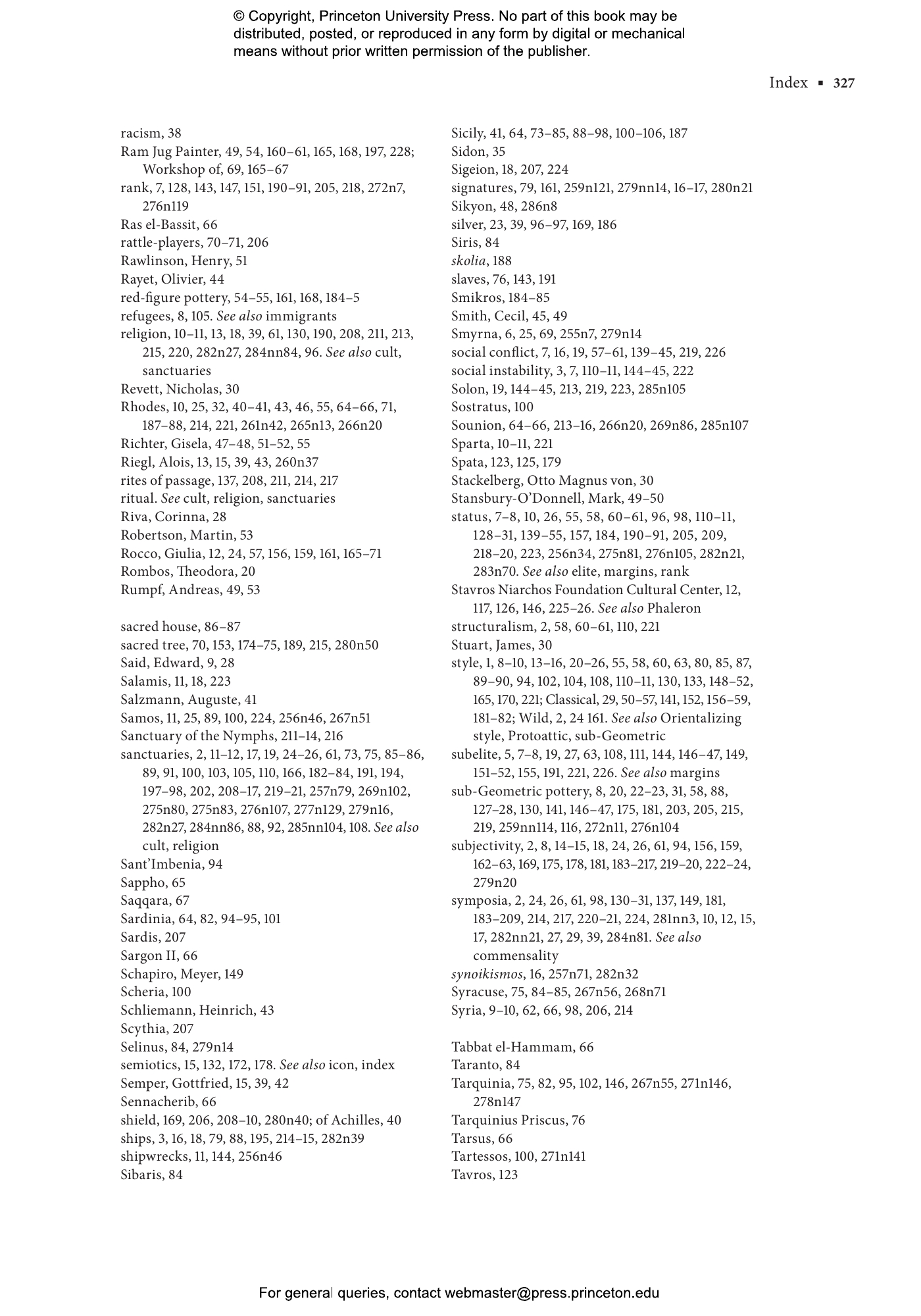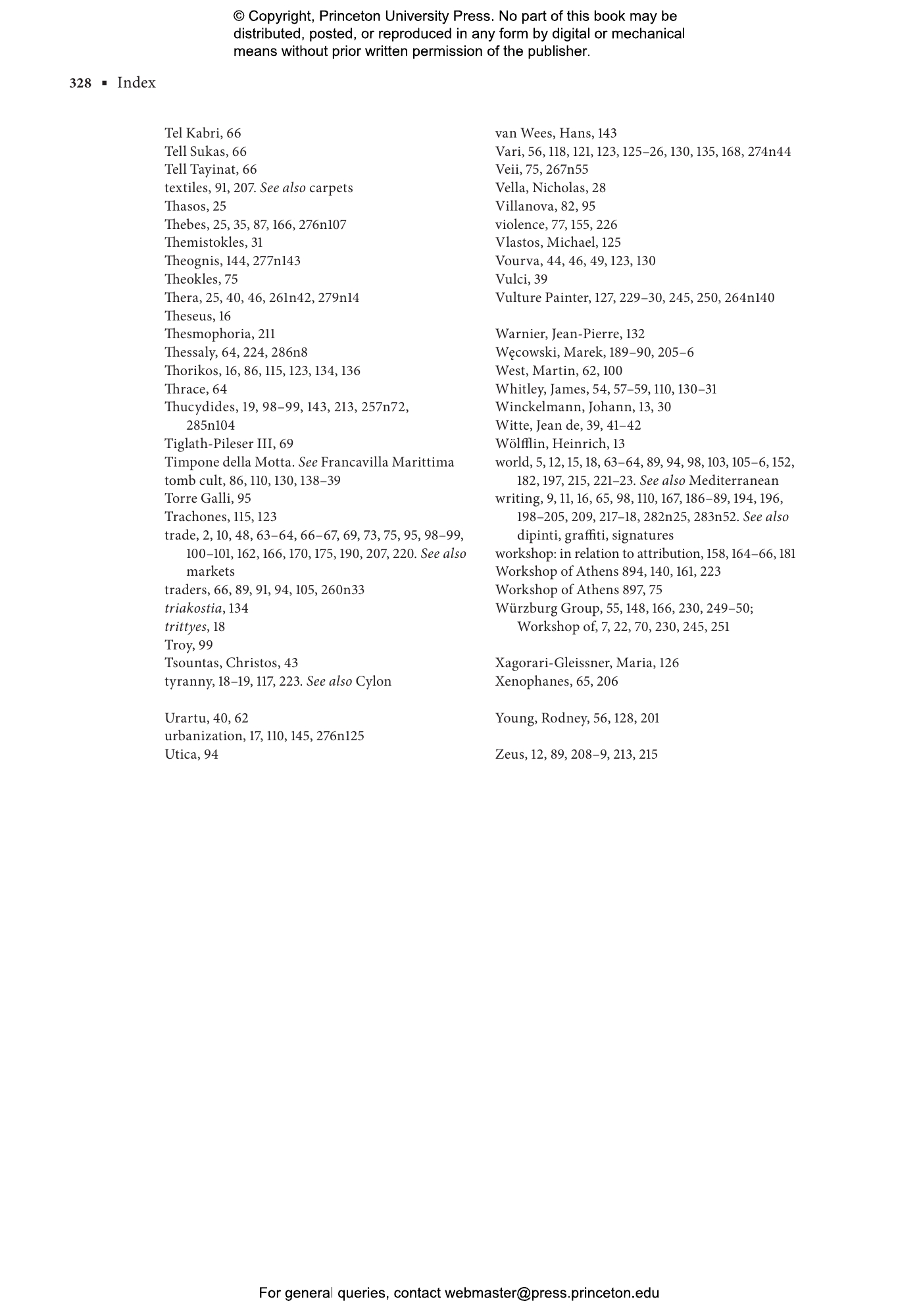The seventh century BC in ancient Greece is referred to as the Orientalizing period because of the strong presence of Near Eastern elements in art and culture. Conventional narratives argue that goods and knowledge flowed from East to West through cosmopolitan elites. Rejecting this explanation, Athens at the Margins proposes a new narrative of the origins behind the style and its significance, investigating how material culture shaped the ways people and communities thought of themselves.
Athens and the region of Attica belonged to an interconnected Mediterranean, in which people, goods, and ideas moved in unexpected directions. Network thinking provides a way to conceive of this mobility, which generated a style of pottery that was heterogeneous and dynamic. Although the elite had power, they were unable to agree on the norms of conspicuous consumption and status display. A range of social actors used objects, contributing to cultural change and to the socially mediated production of meaning. Historiography and the analysis of evidence from a wide range of contexts—cemeteries, sanctuaries, workshops, and symposia—offers the possibility to step outside the aesthetic frameworks imposed by classical Greek masterpieces and to expand the canon of Greek art.
Highlighting the results of new excavations and looking at the interactions of people with material culture, Athens at the Margins provocatively shifts perspectives on Greek art and its relationship to the eastern Mediterranean.
"With its copious fine illustrations and lucid exposition, this is an extraordinary resource for the teacher of Greek archaeology."—Robin Osborne, World Archaeology
"In this significant reinterpretation, Arrington convincingly maintains that material culture and knowledge did not flow from East to West just through multiethnic elites; it also flowed through the interactions of non-elites."—C. C. Kolb, Choice Reviews
"In his wonderfully stimulating book, Nathan Arrington has the people on the margins of 7th-century Attica have their voices roaring back into the debate. . . . [It] should be read by anyone interested in the subaltern perspective, artistry and pottery, as well as the historiography behind many of the discipline’s accepted assumptions."—Roy van Wijk, The Classical Journal
"This is an inspiring book. It is not only well researched, nicely illustrated and elegantly written, but it offers a whole range of new perspectives on the Protoattic style and its wider context, with the objects themselves (and their agency) taking center stage."—Maximilian Rönnberg, Bryn Mawr Classical Review
"Thought-provoking and ambitious…[t]his unconventional volume – beautifully phrased and engagingly written – is very clear and well structured, with numerous high-quality images helping readers to follow [Arrington’s] descriptions and readings of the vases."—Adriano Orsingher, The Classical Review
"[A] beautifully written book, based on substantial and thorough research. . . . Moving away from the “Orientalizing” paradigm, Arrington succeeds in bringing to the forefront artists, immigrants, and multicultural communities, while challenging the elite connotations of the Proto-Attic pottery. This book, well produced and richly illustrated, is a positive contribution to the literature on seventh-century BCE Attica for students and scholars alike."—Vicky Vlachou, American Journal of Archaeology
"[F]ascinating and ground-breaking. . . . [Athens at the Margins] is an intelligent, very well written, and well-presented book."—Conor Trainor, Sehepunkte
"With an engaging and distinctive style, this useful book examines a topic that continues to demand scholarly attention, a topic deeply implicated in broader debates about the archaic Mediterranean world."—James Whitley, Cardiff University
"Athens at the Margins reconsiders Protoattic pottery within a regional framework and within new networks that embrace the central Mediterranean. It productively explores the history of scholarship and wide-ranging social dynamics of this remarkable ceramic corpus."—Ann C. Gunter, Northwestern University


